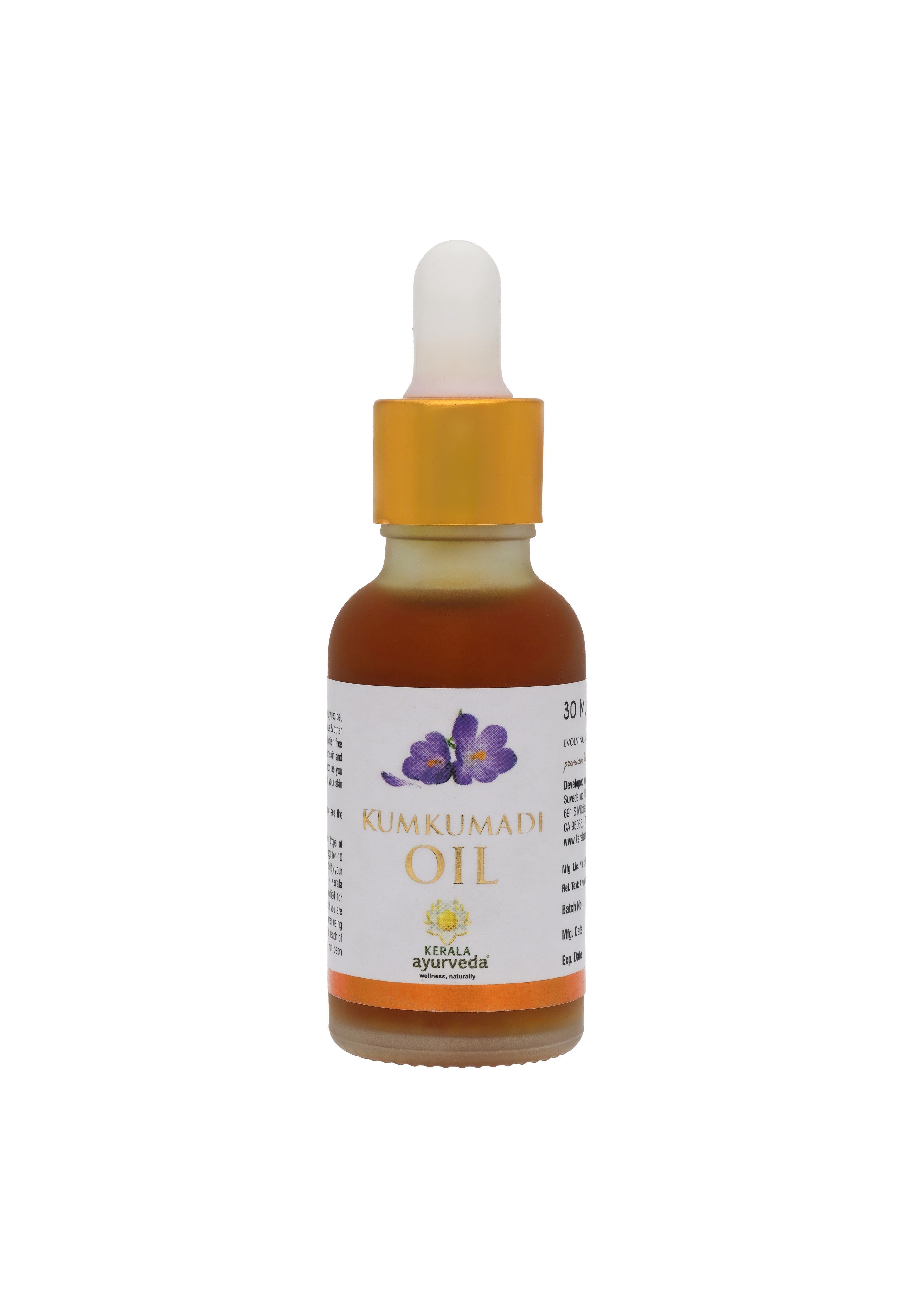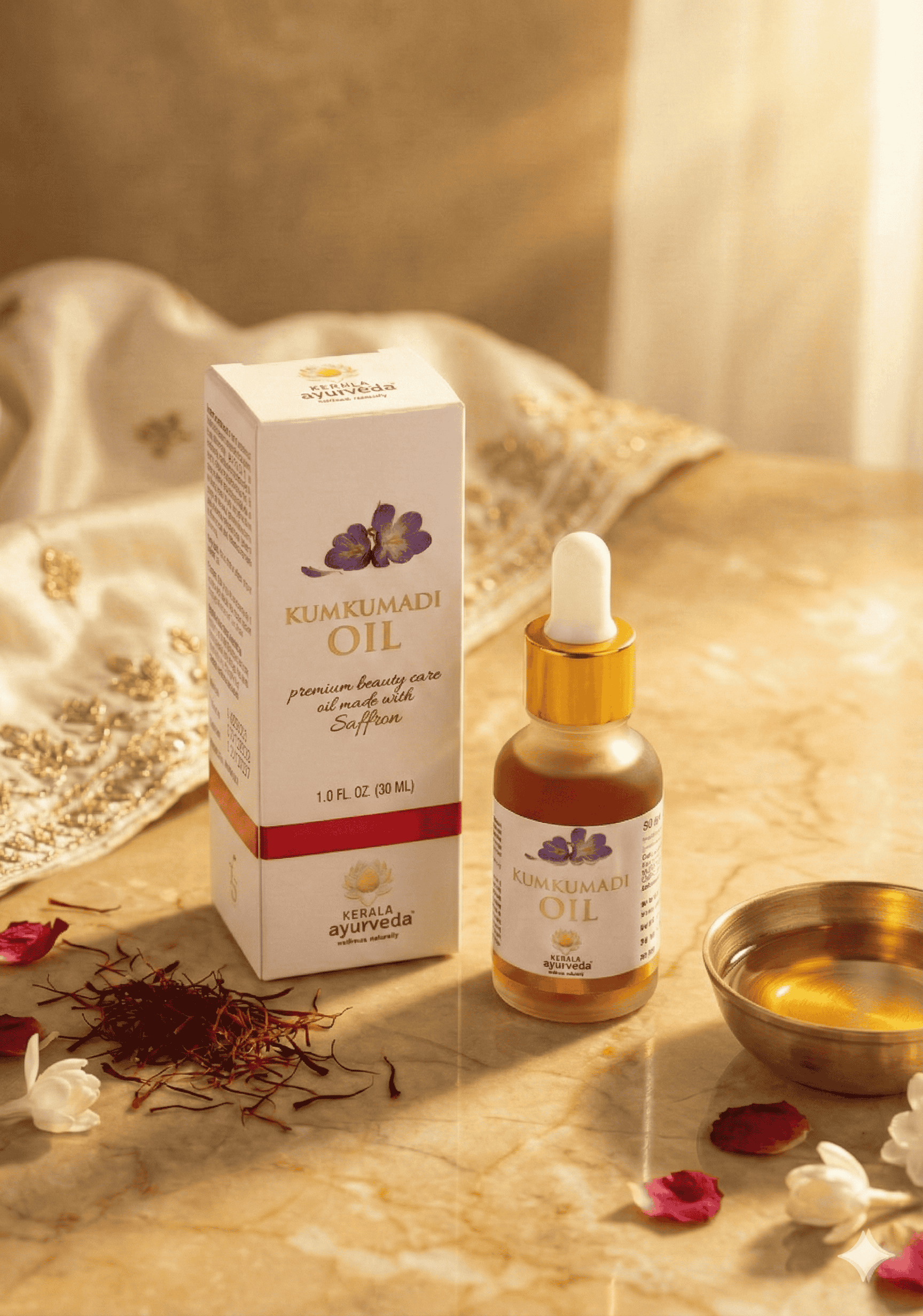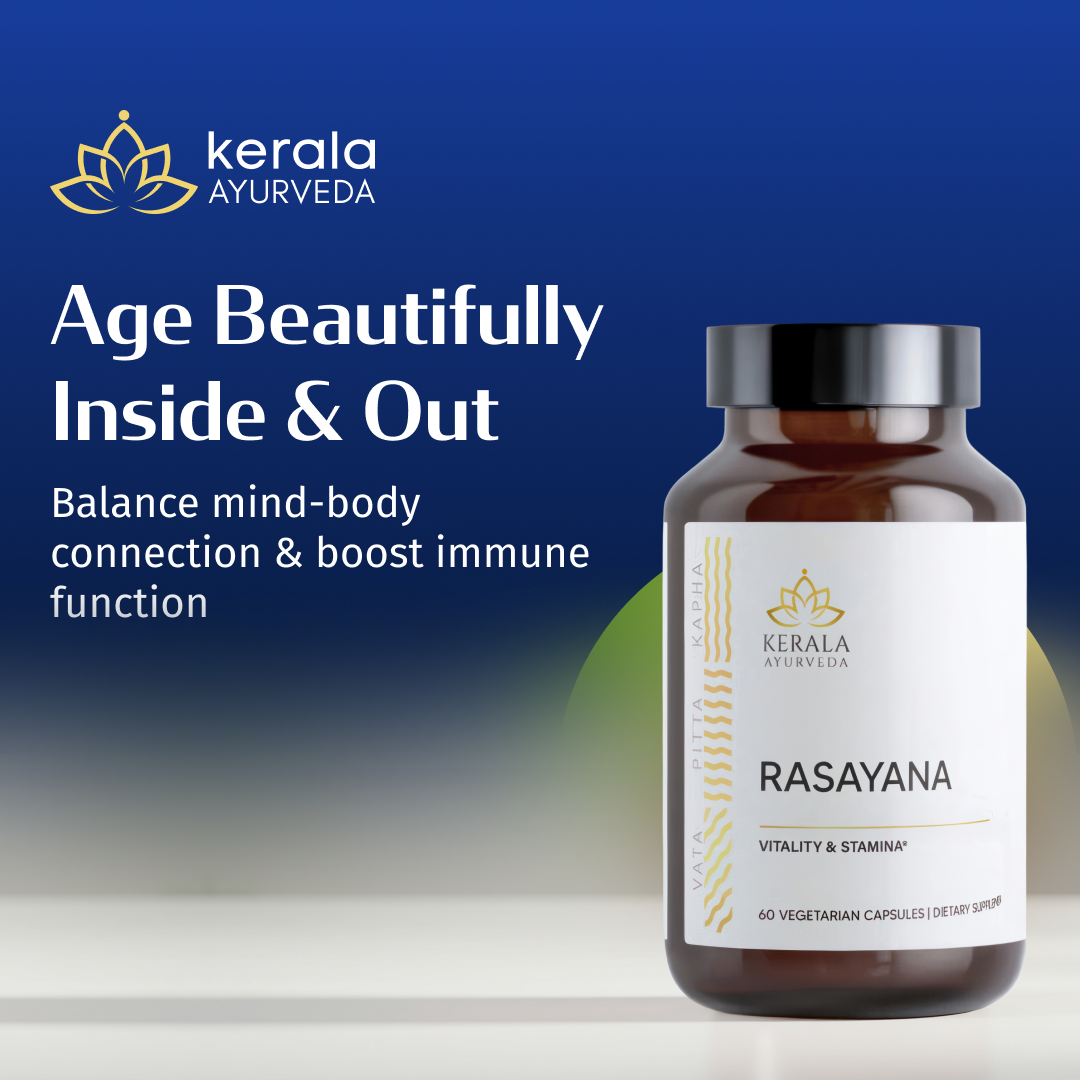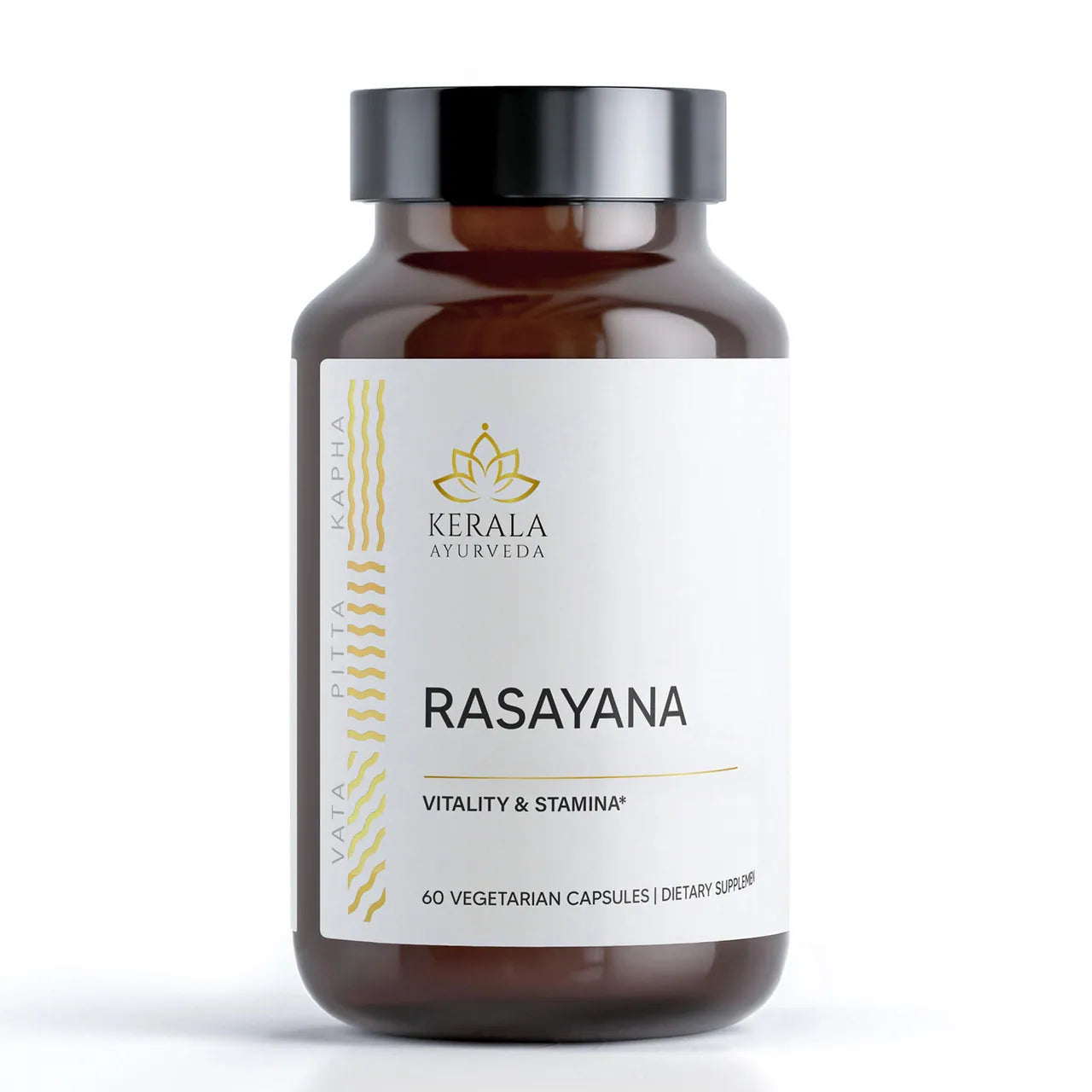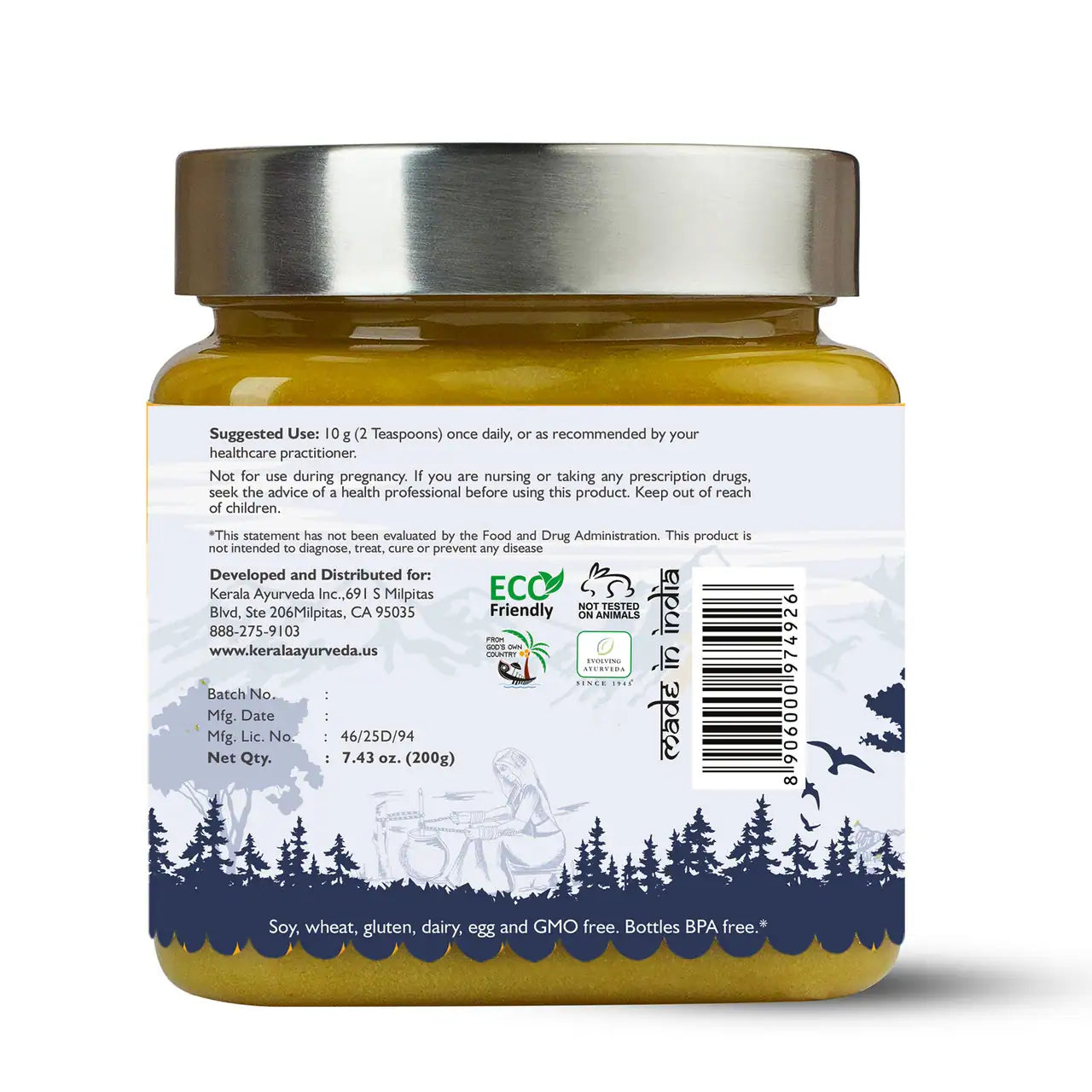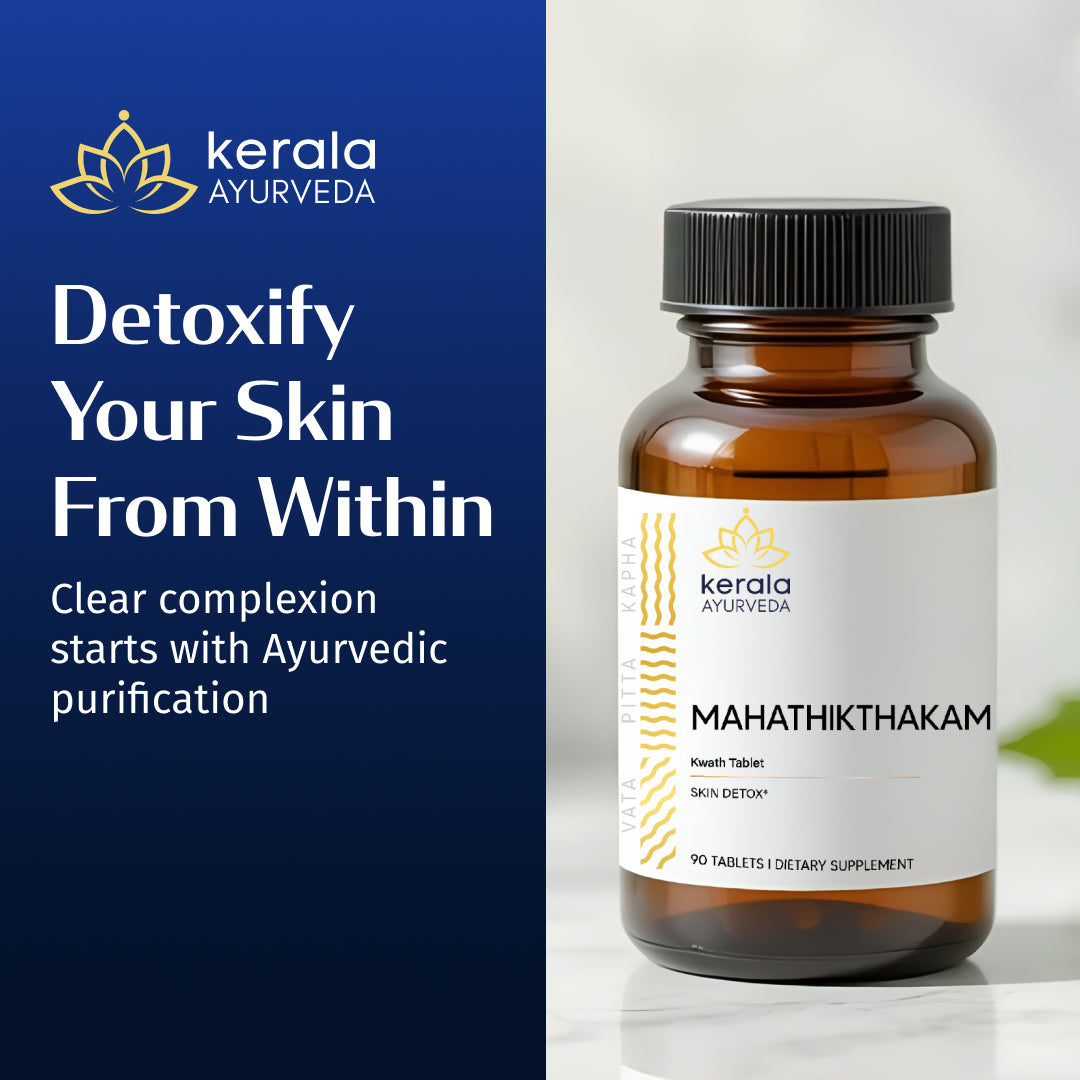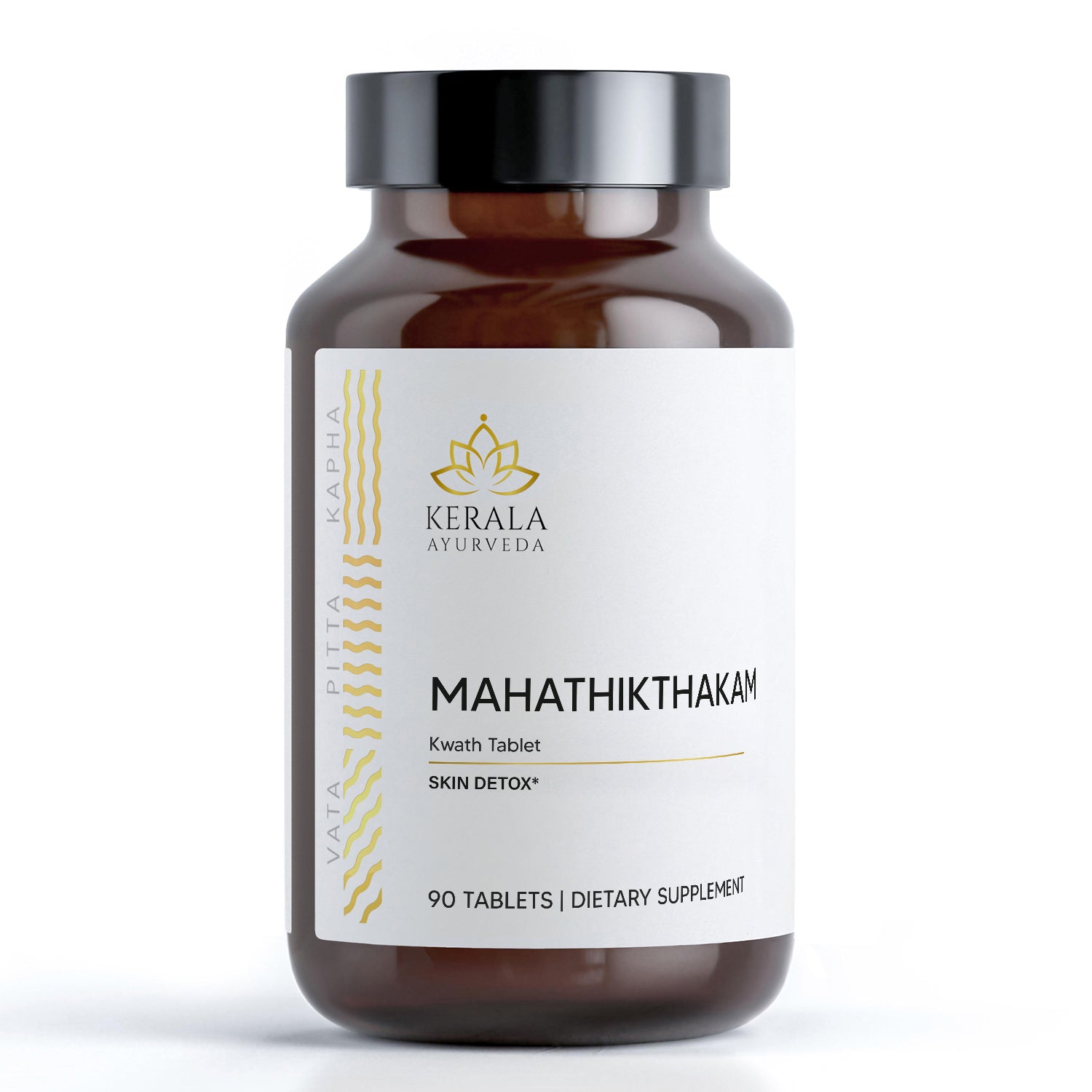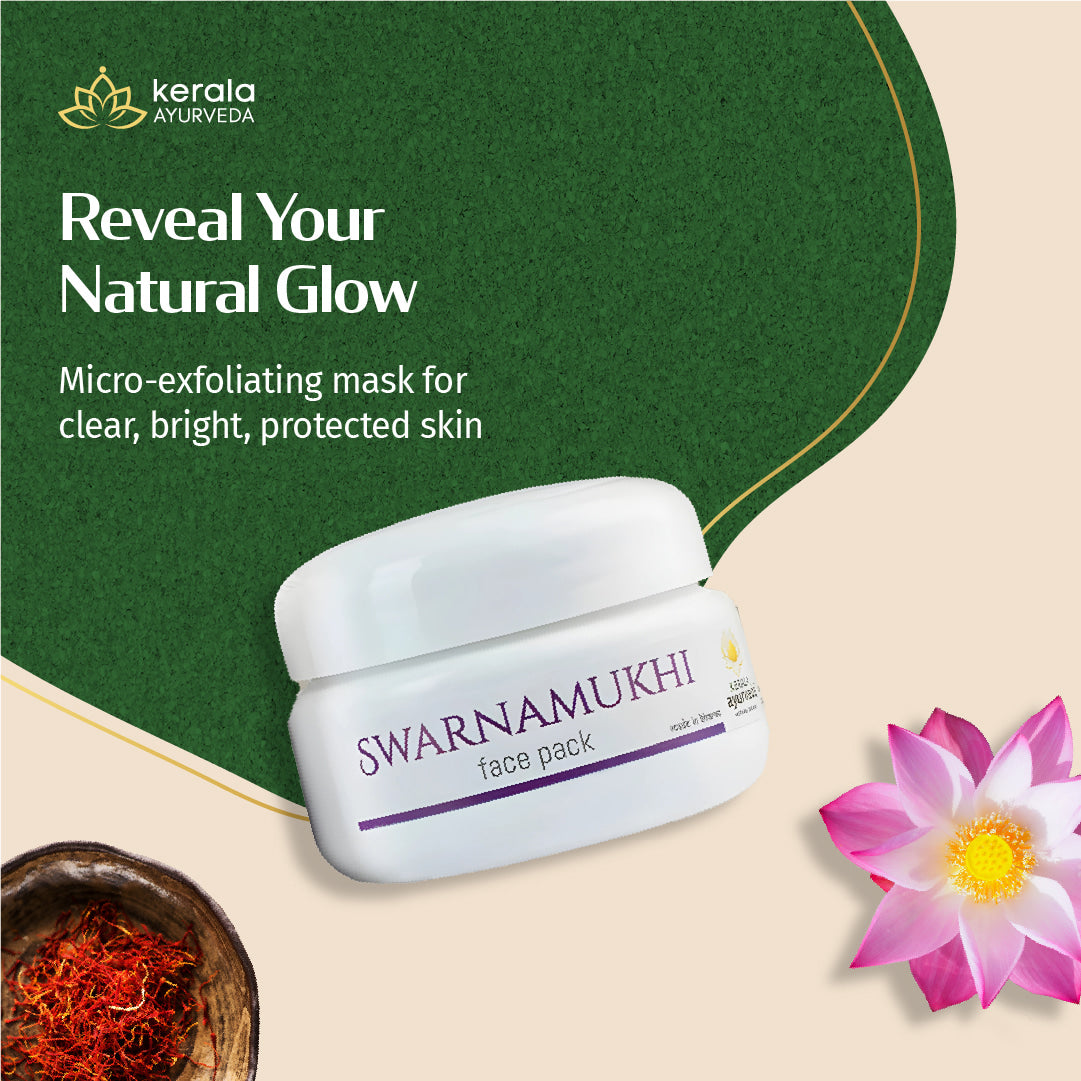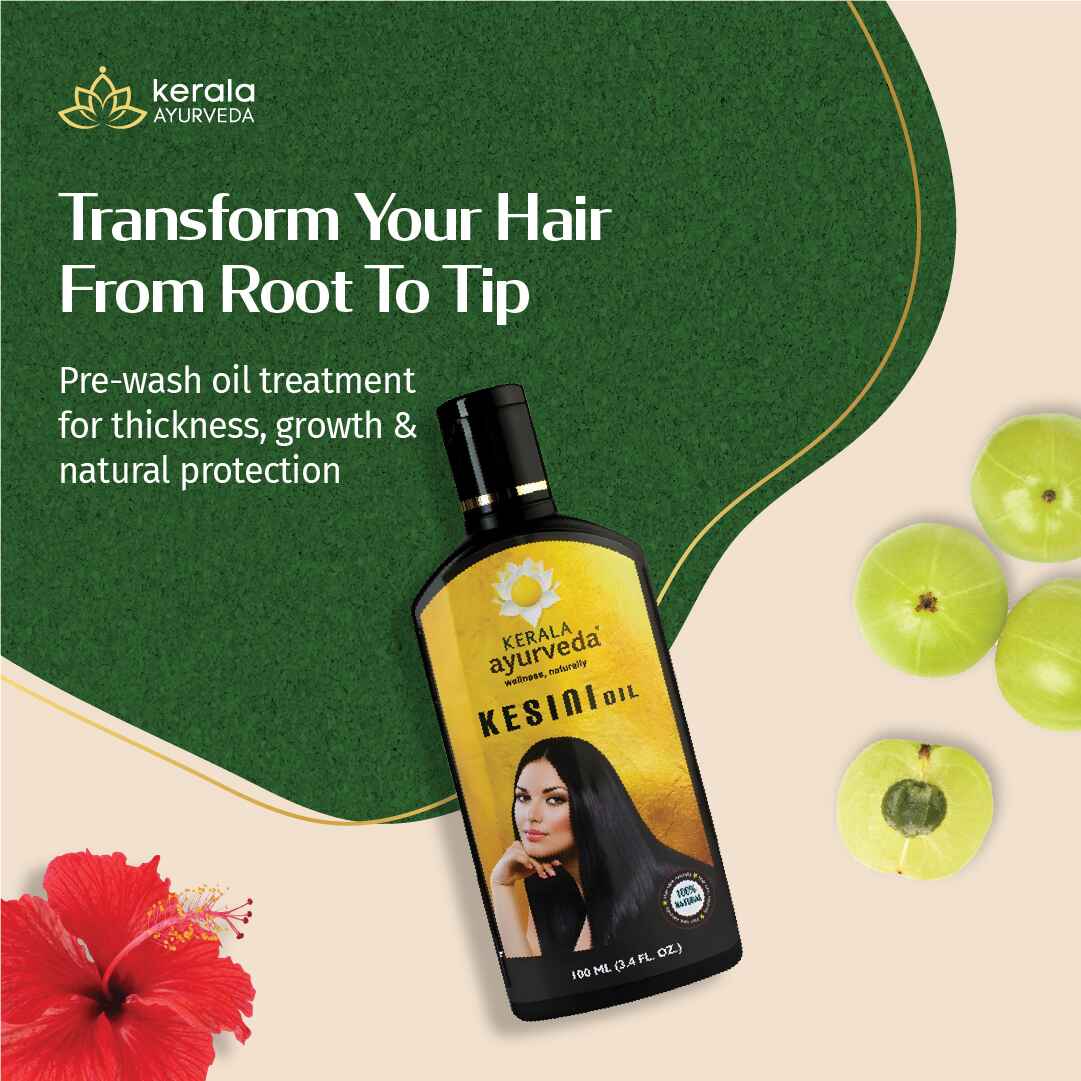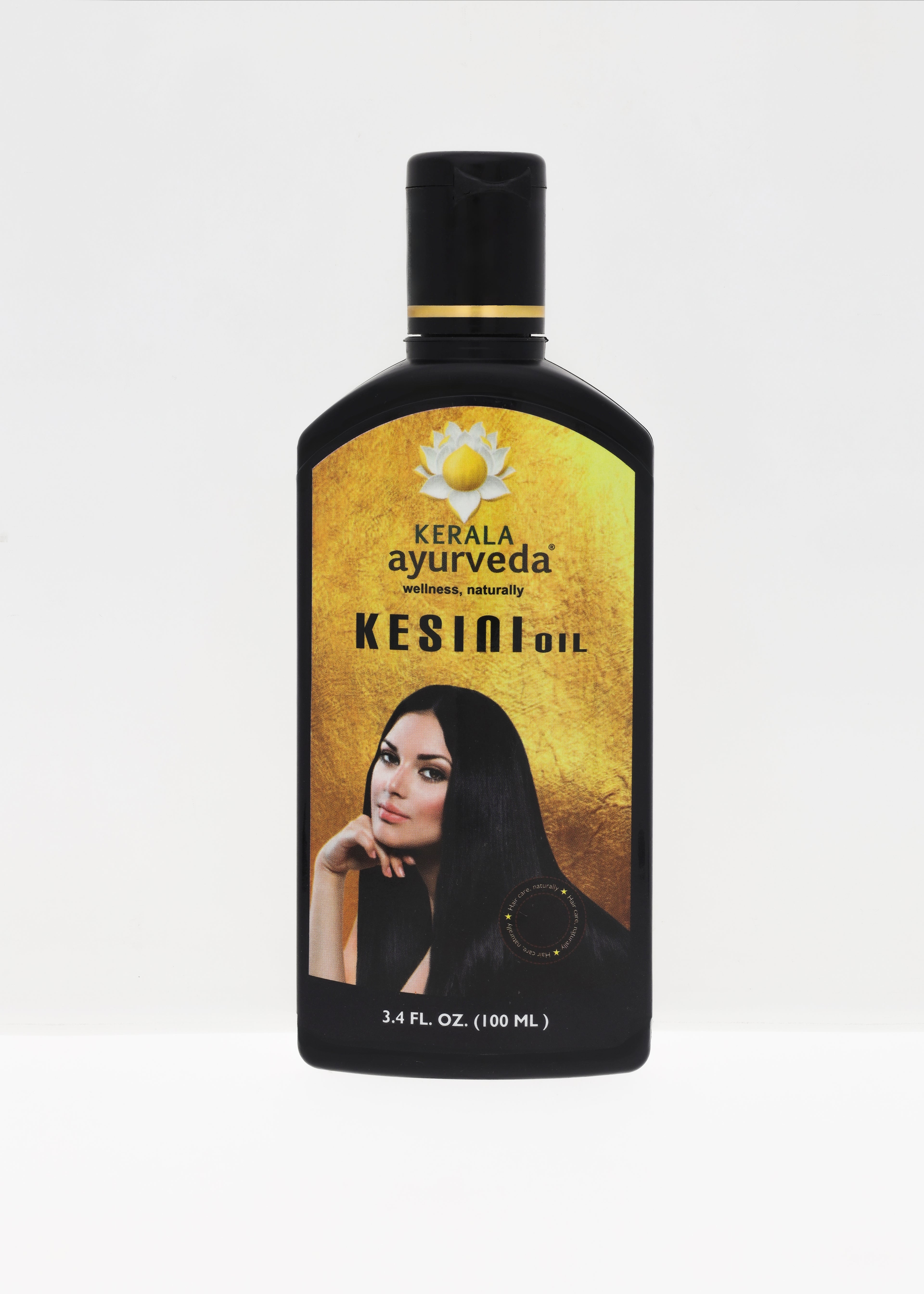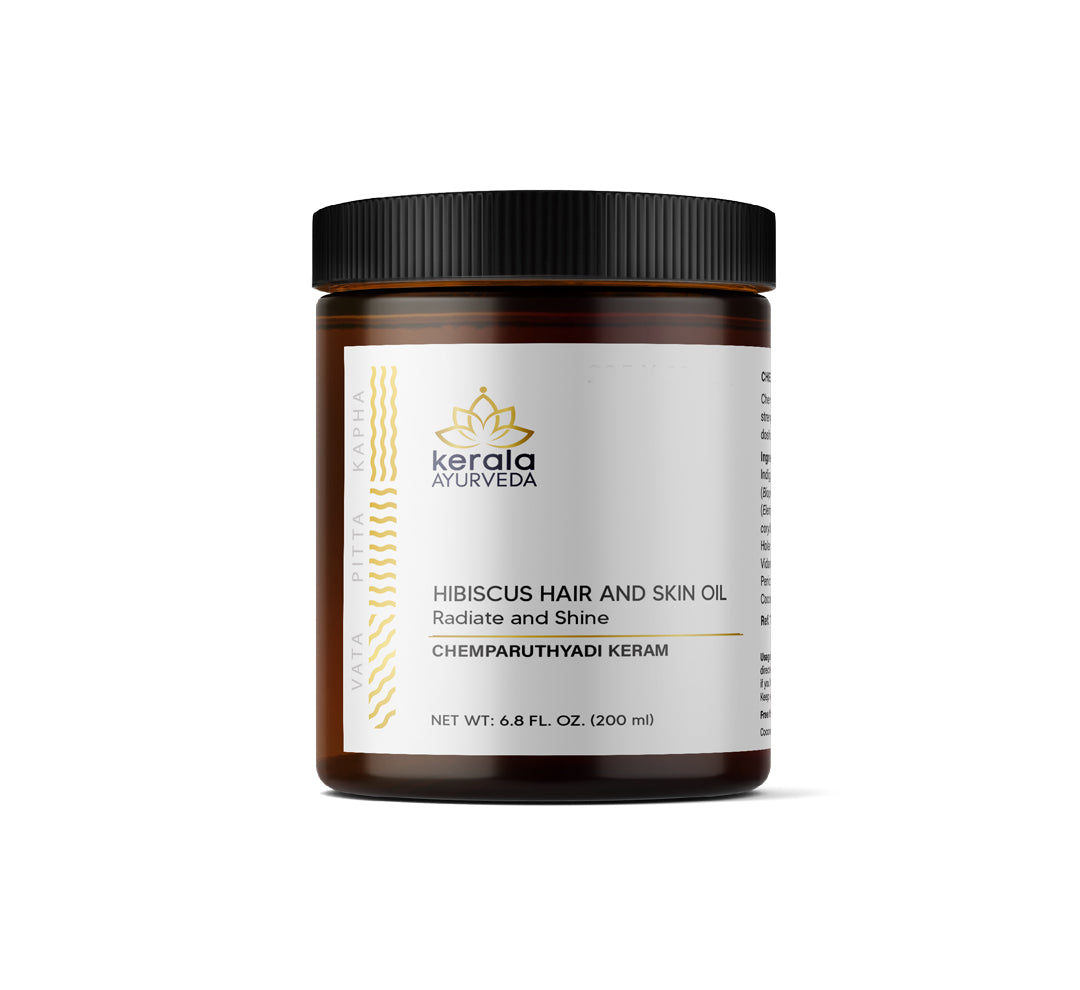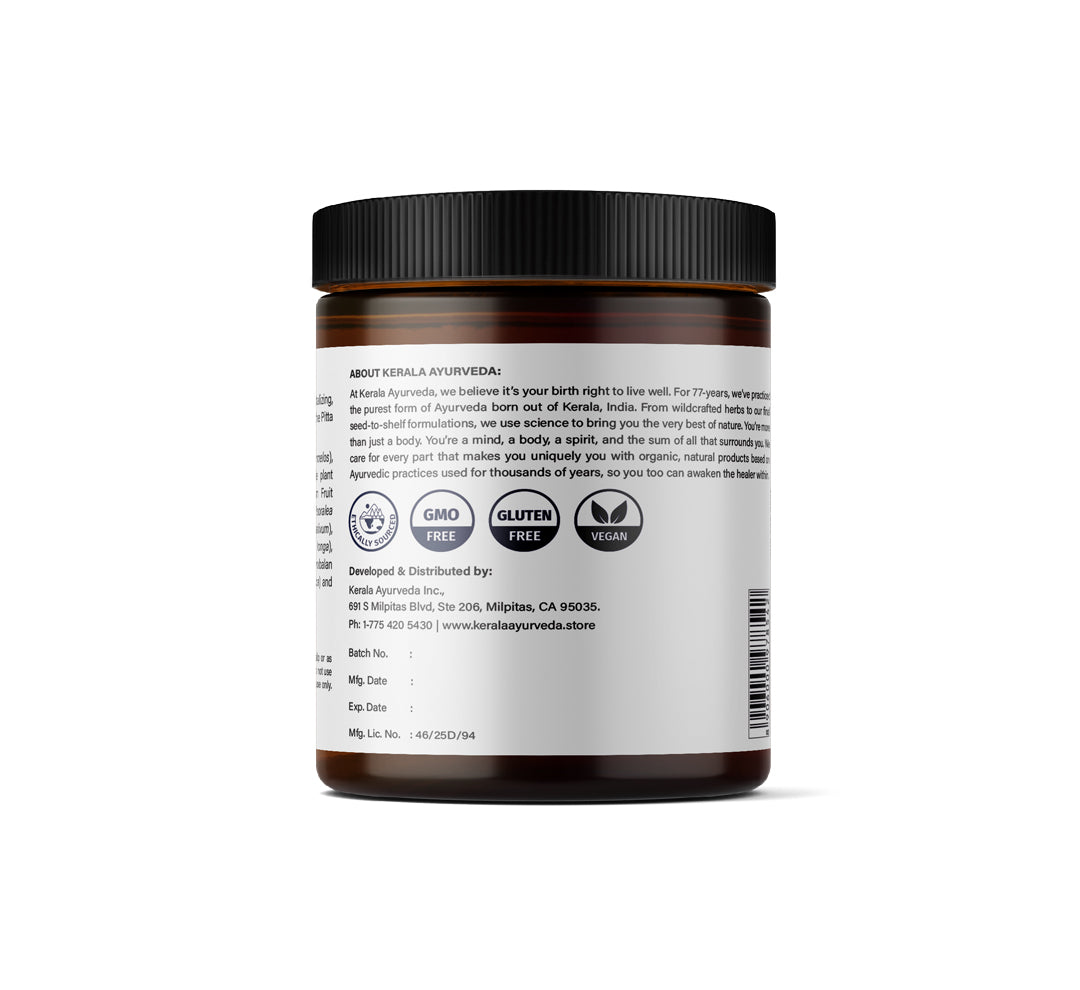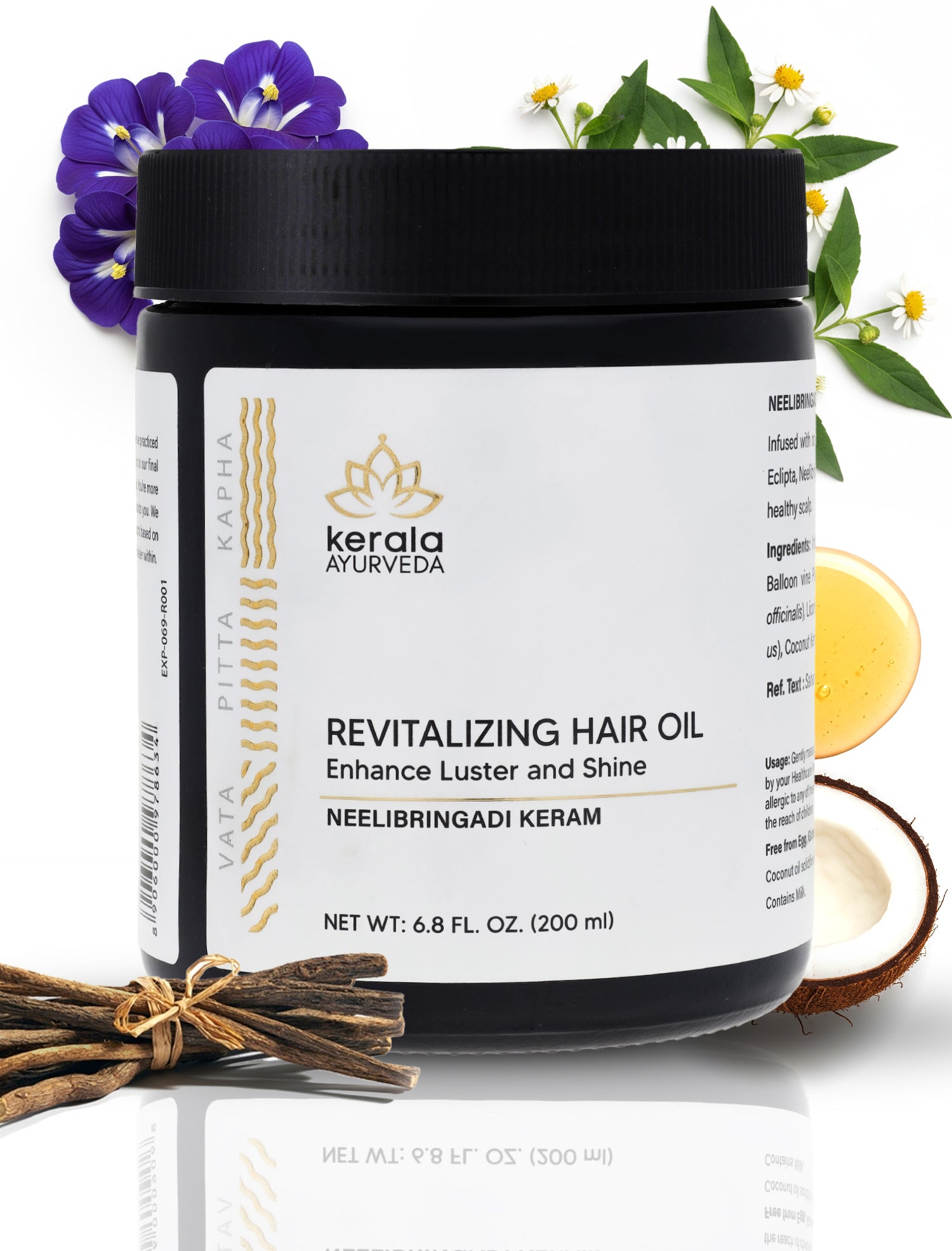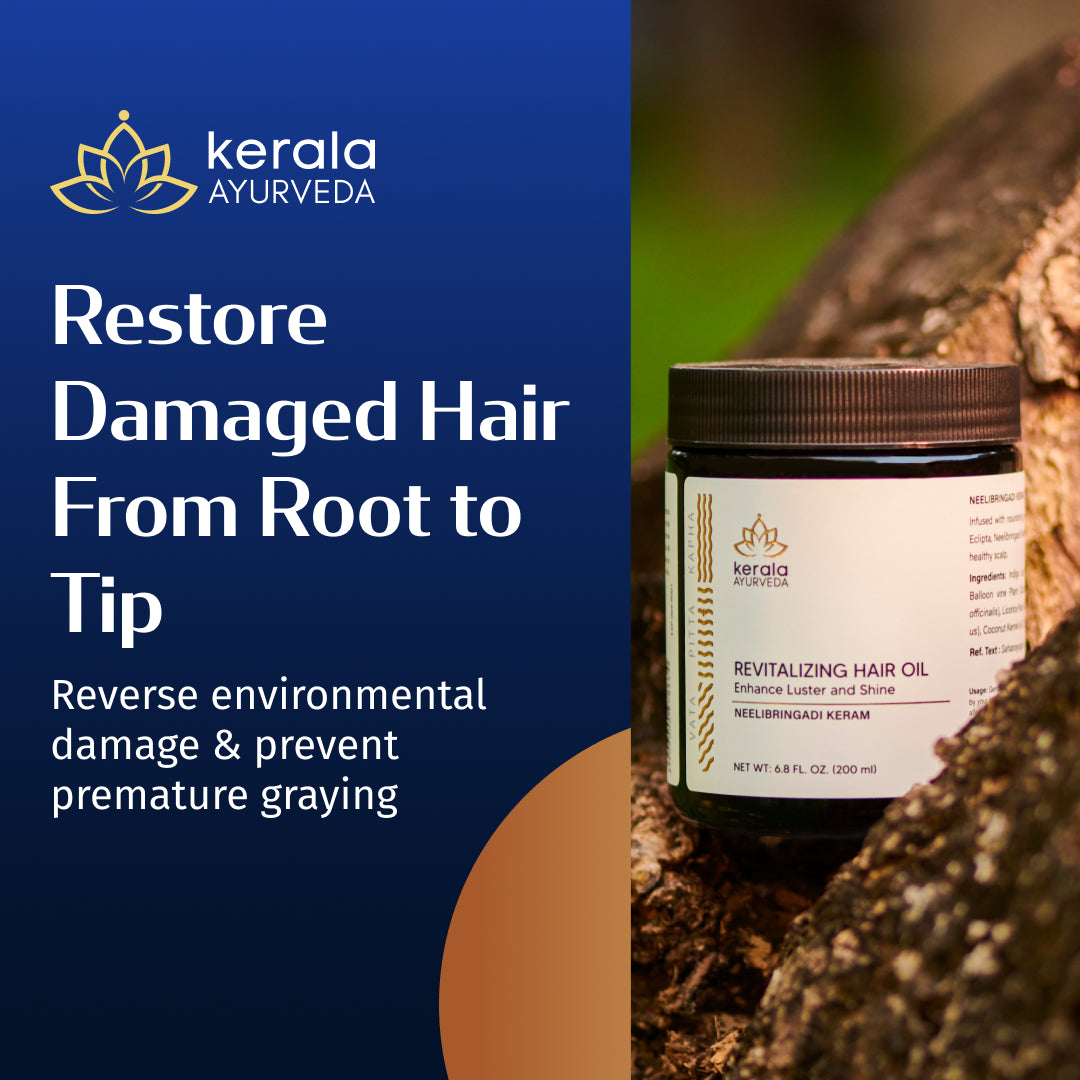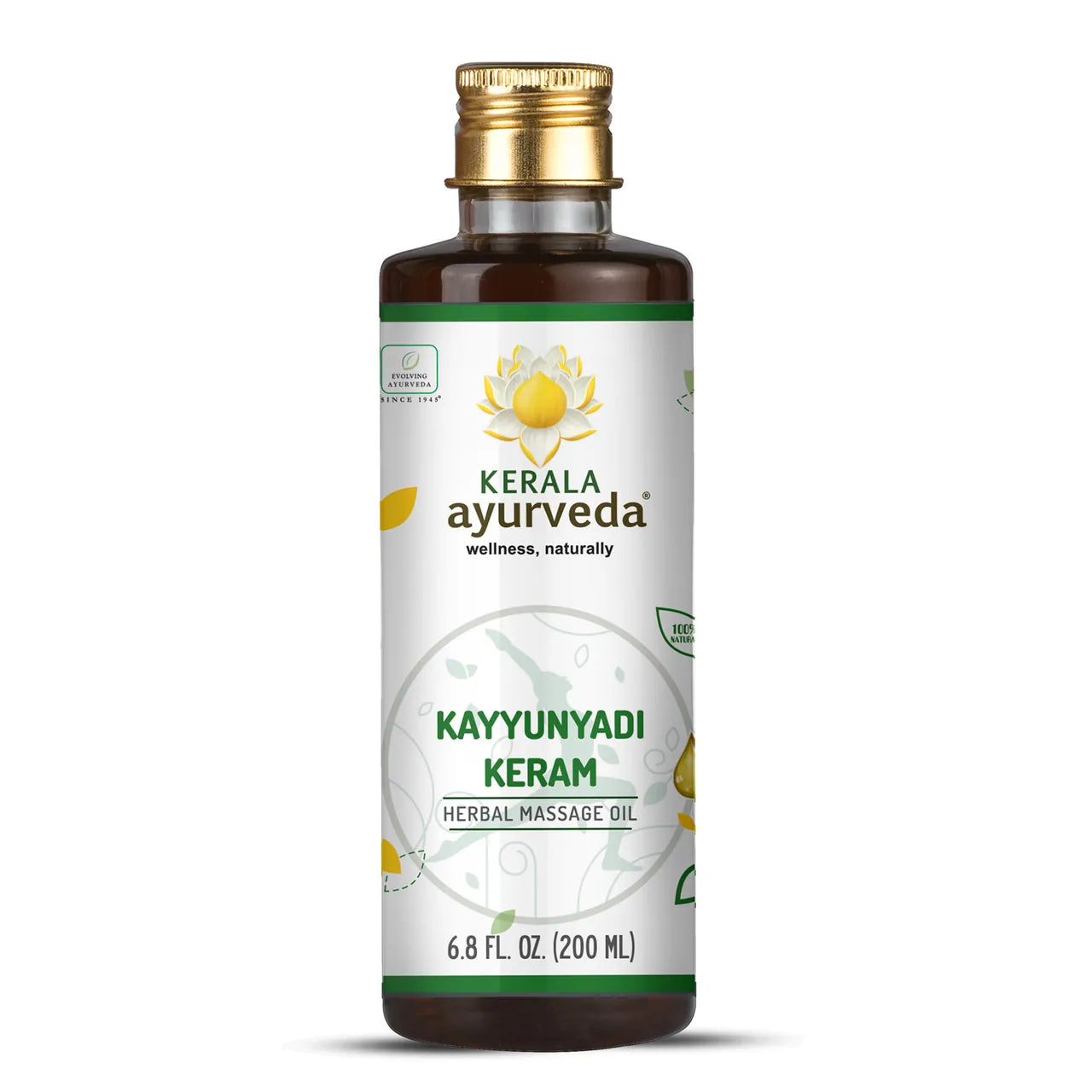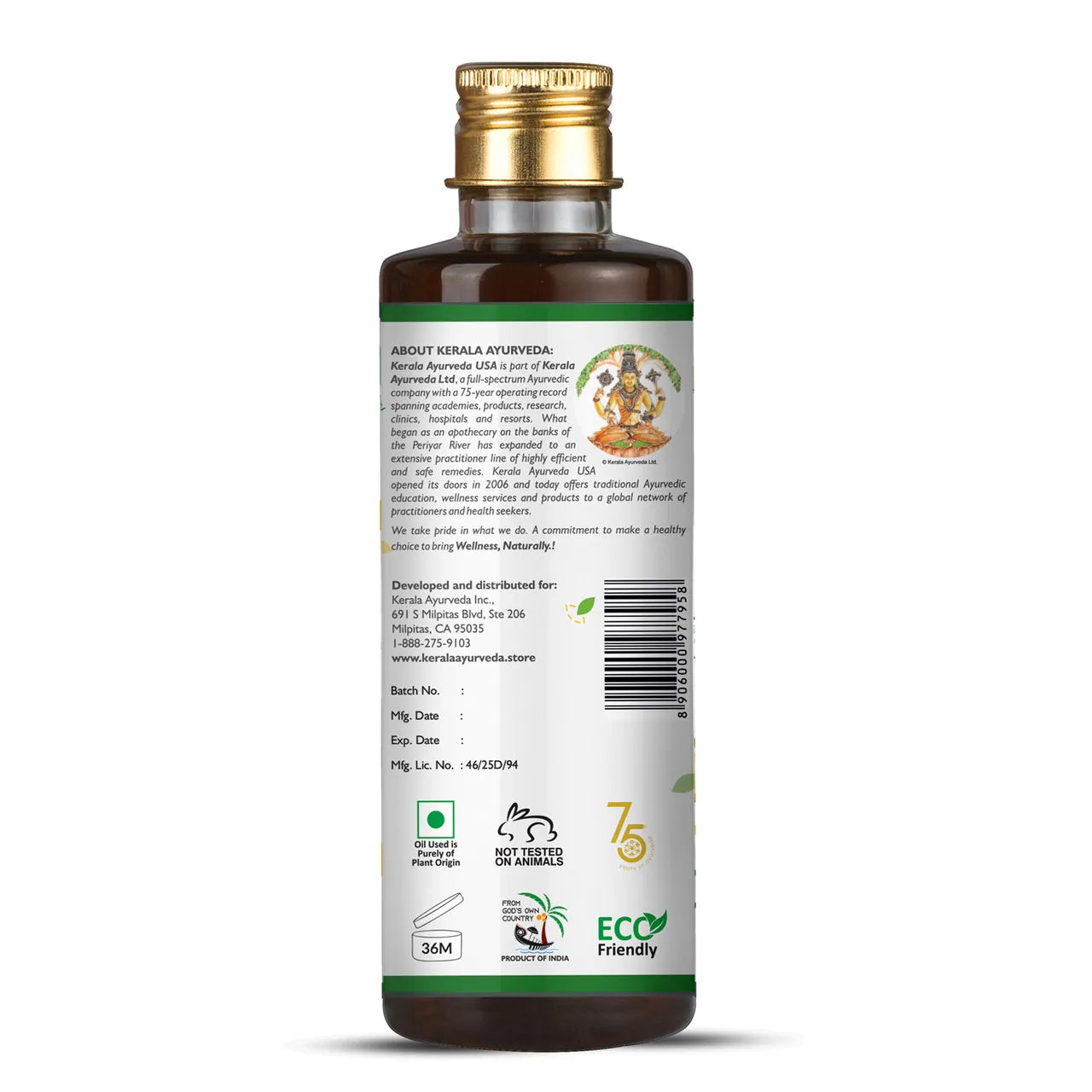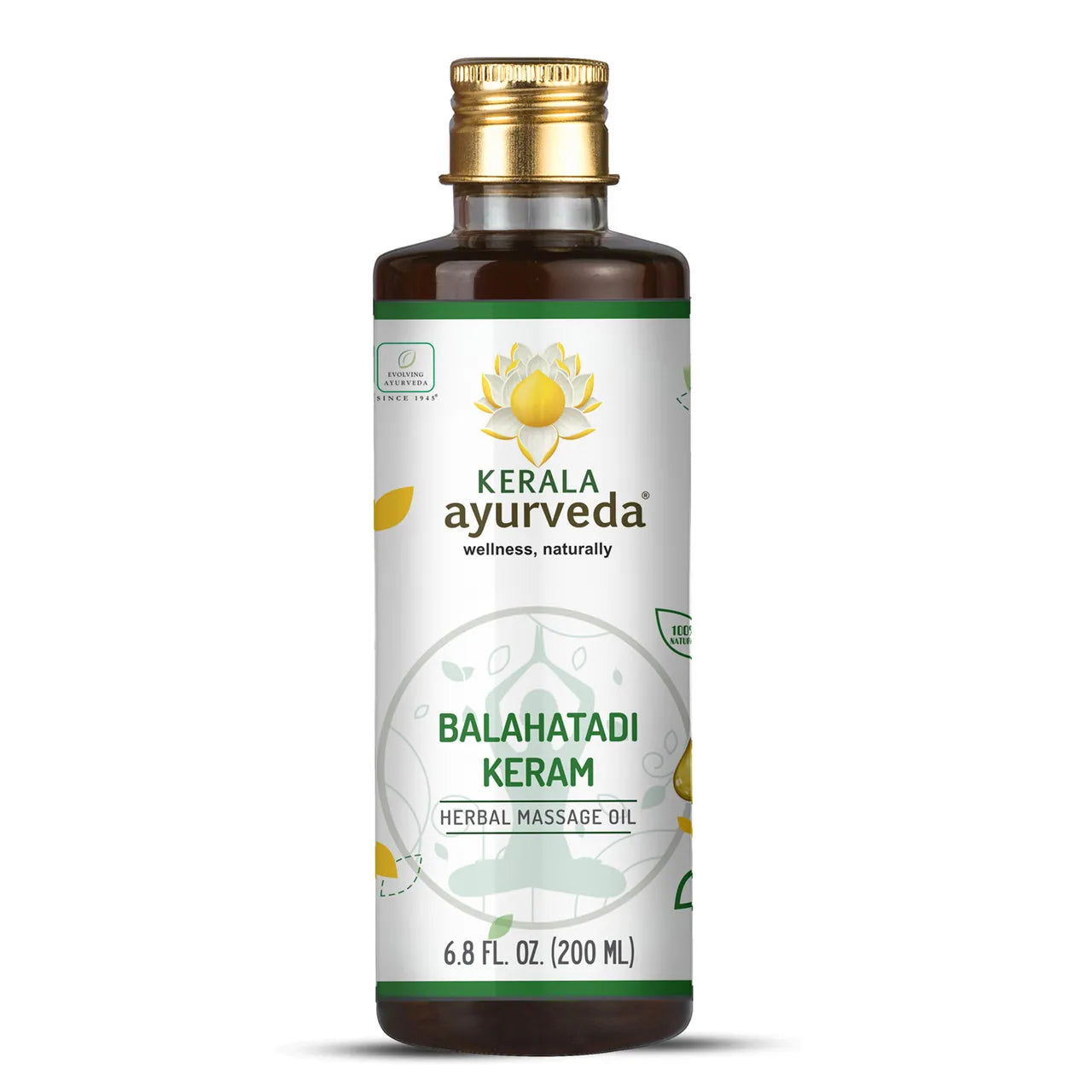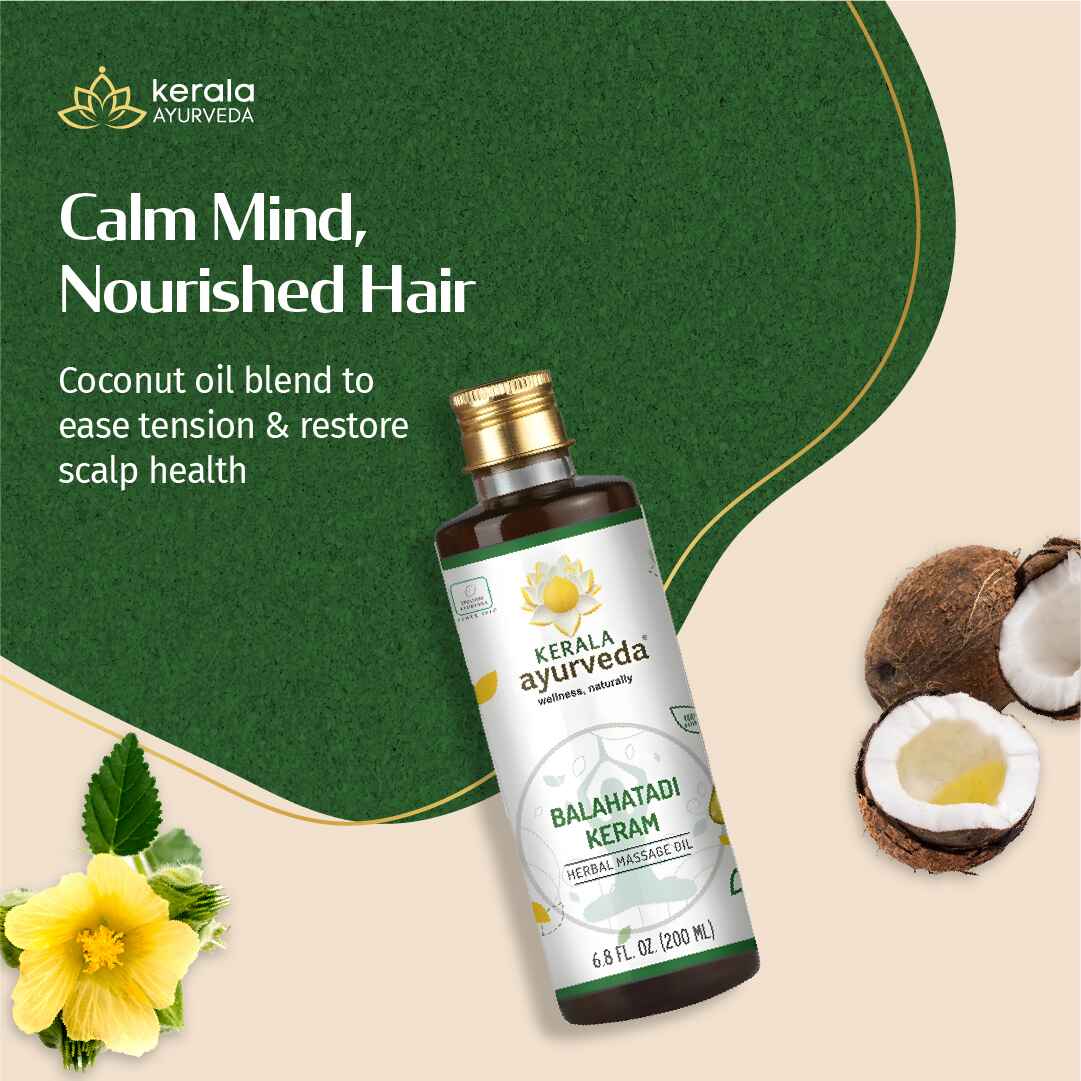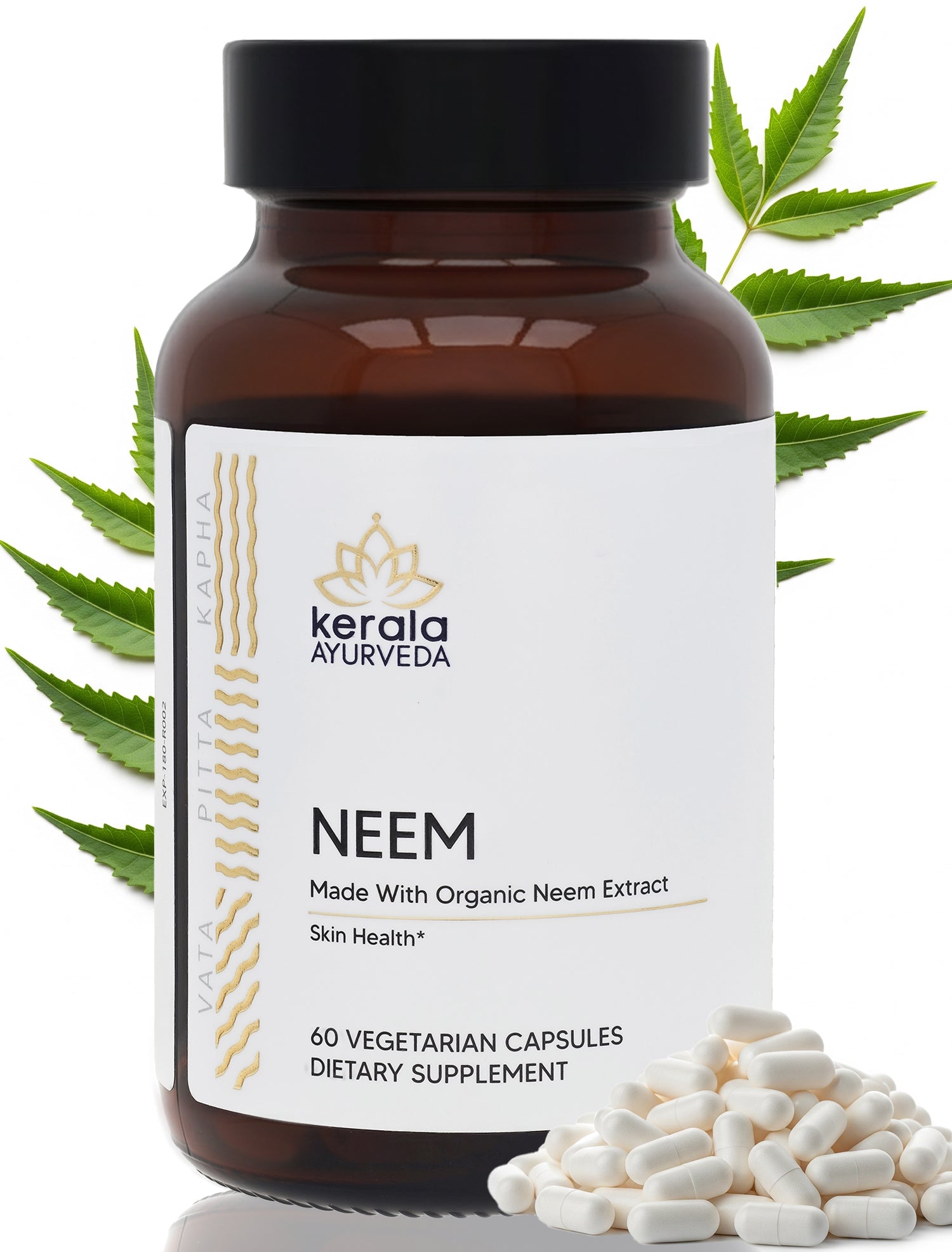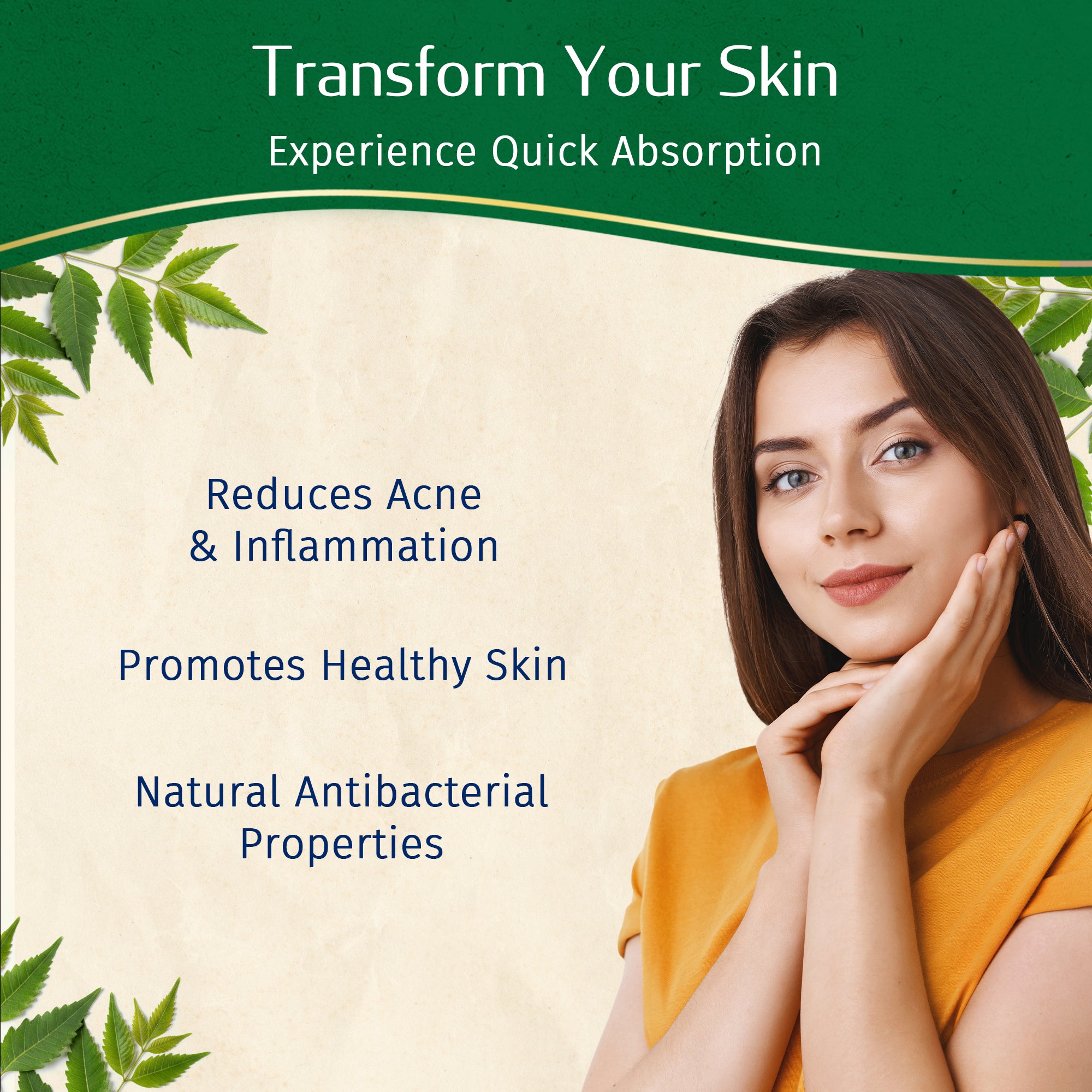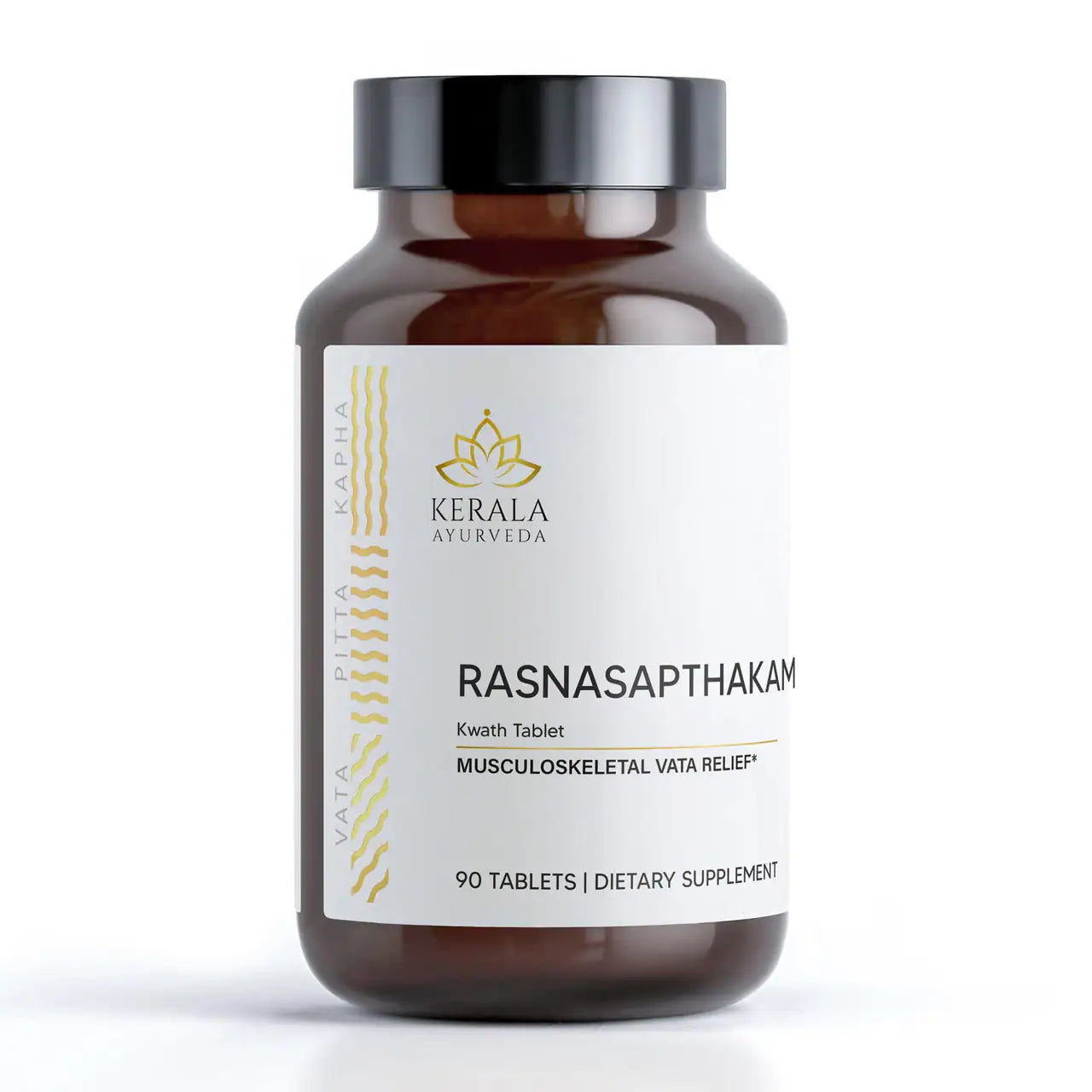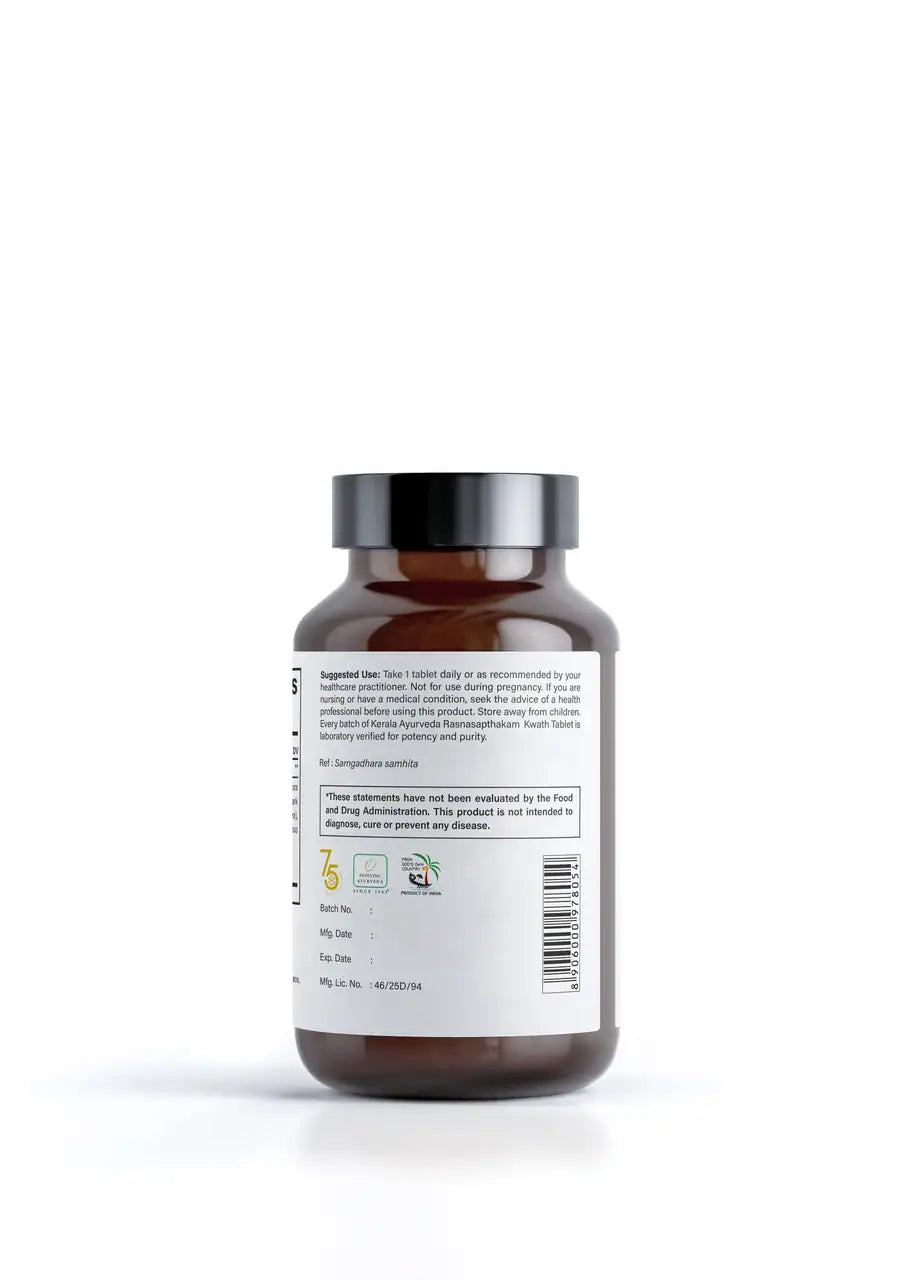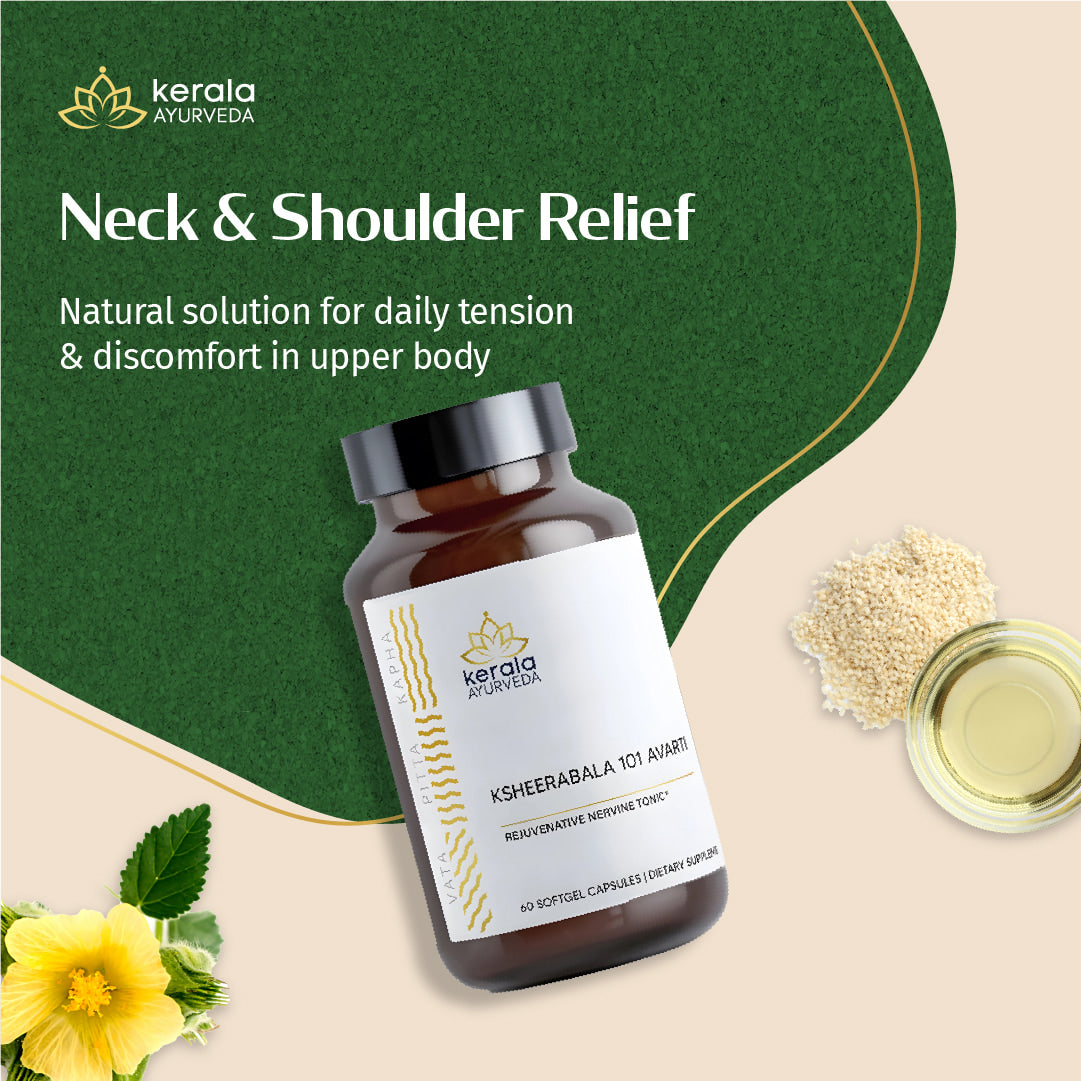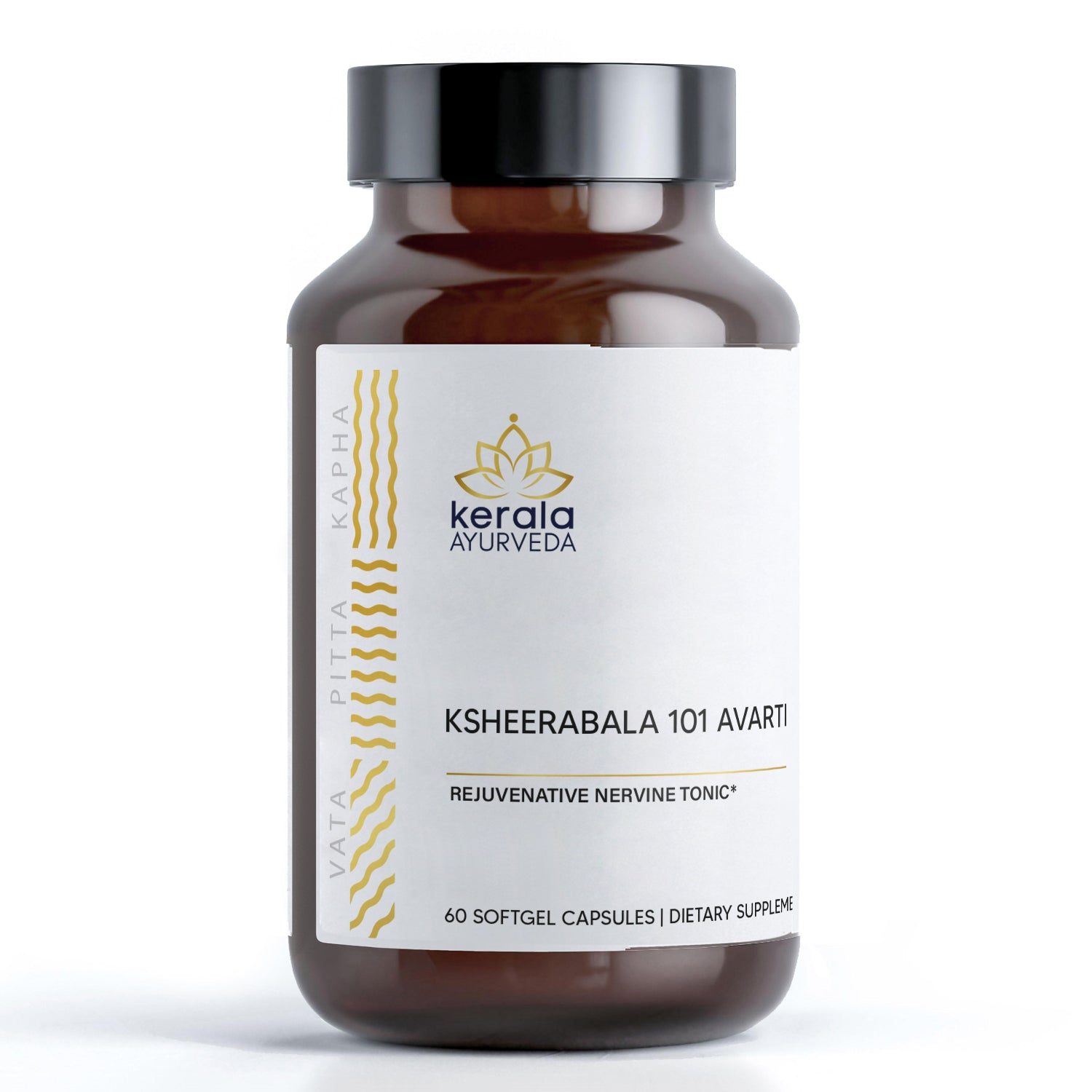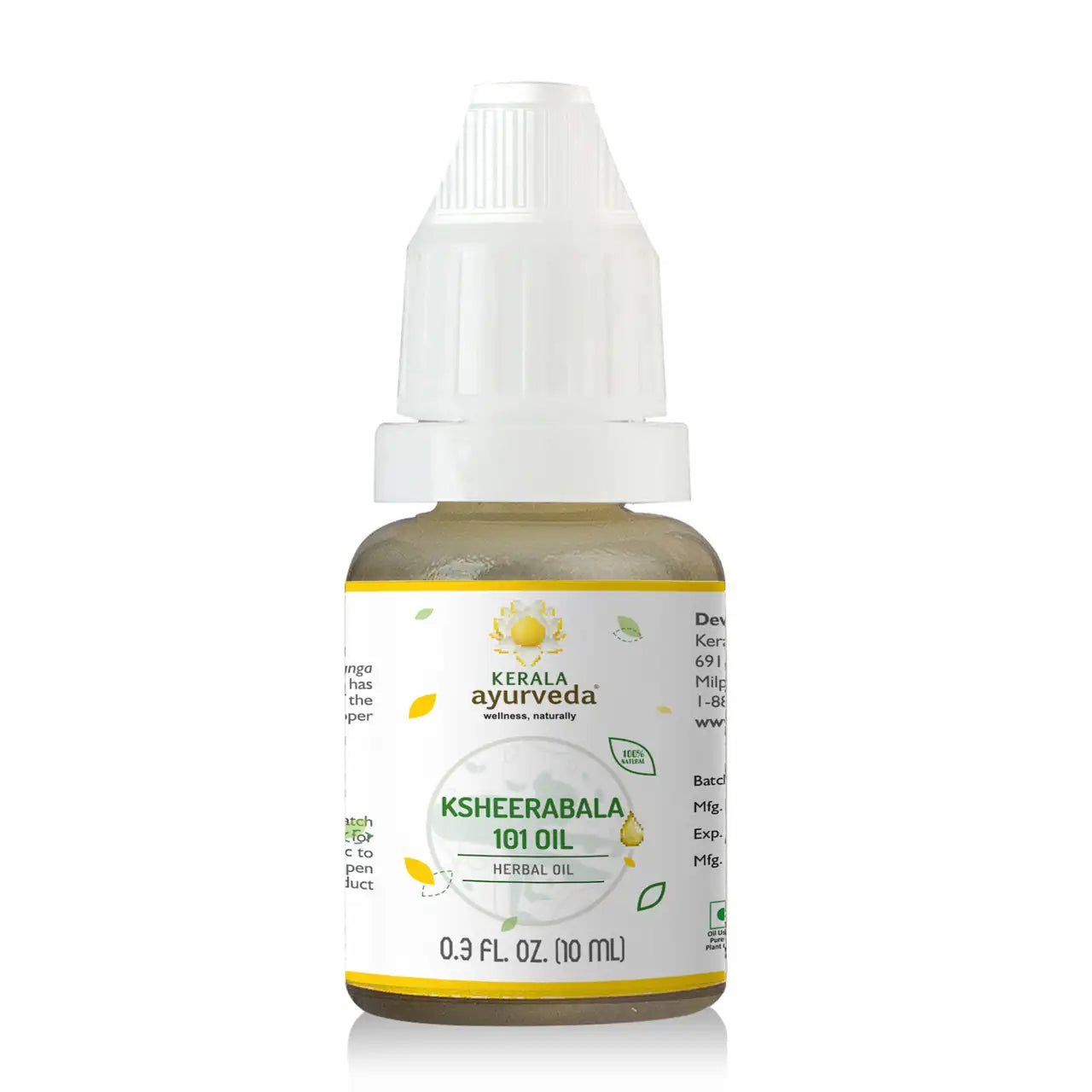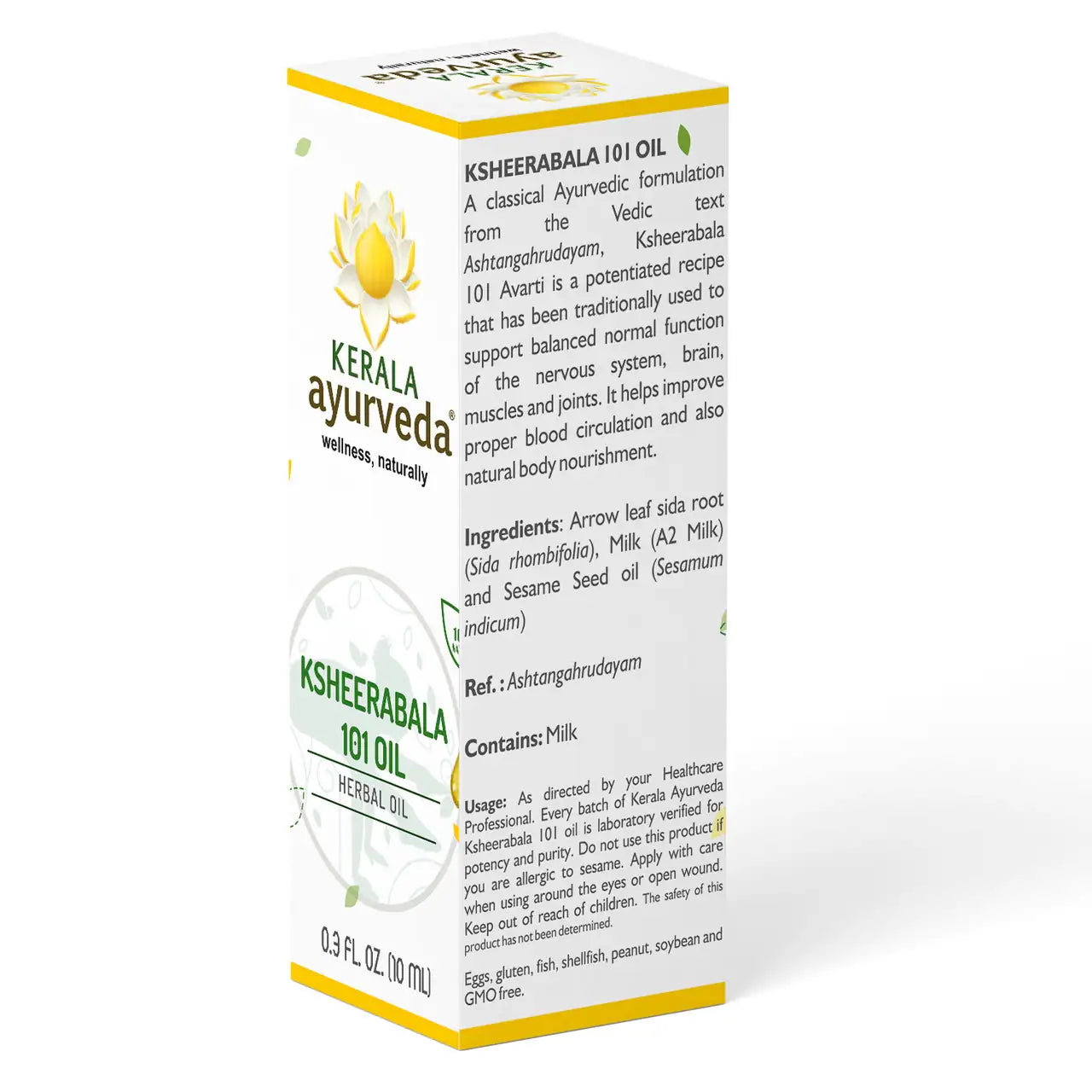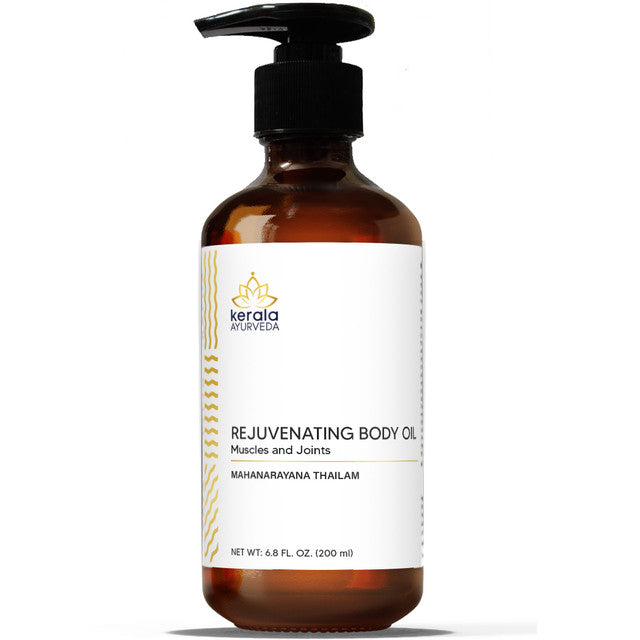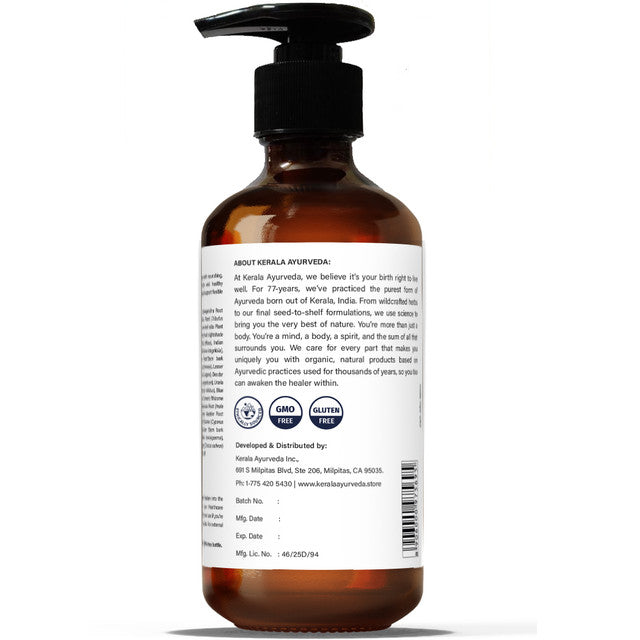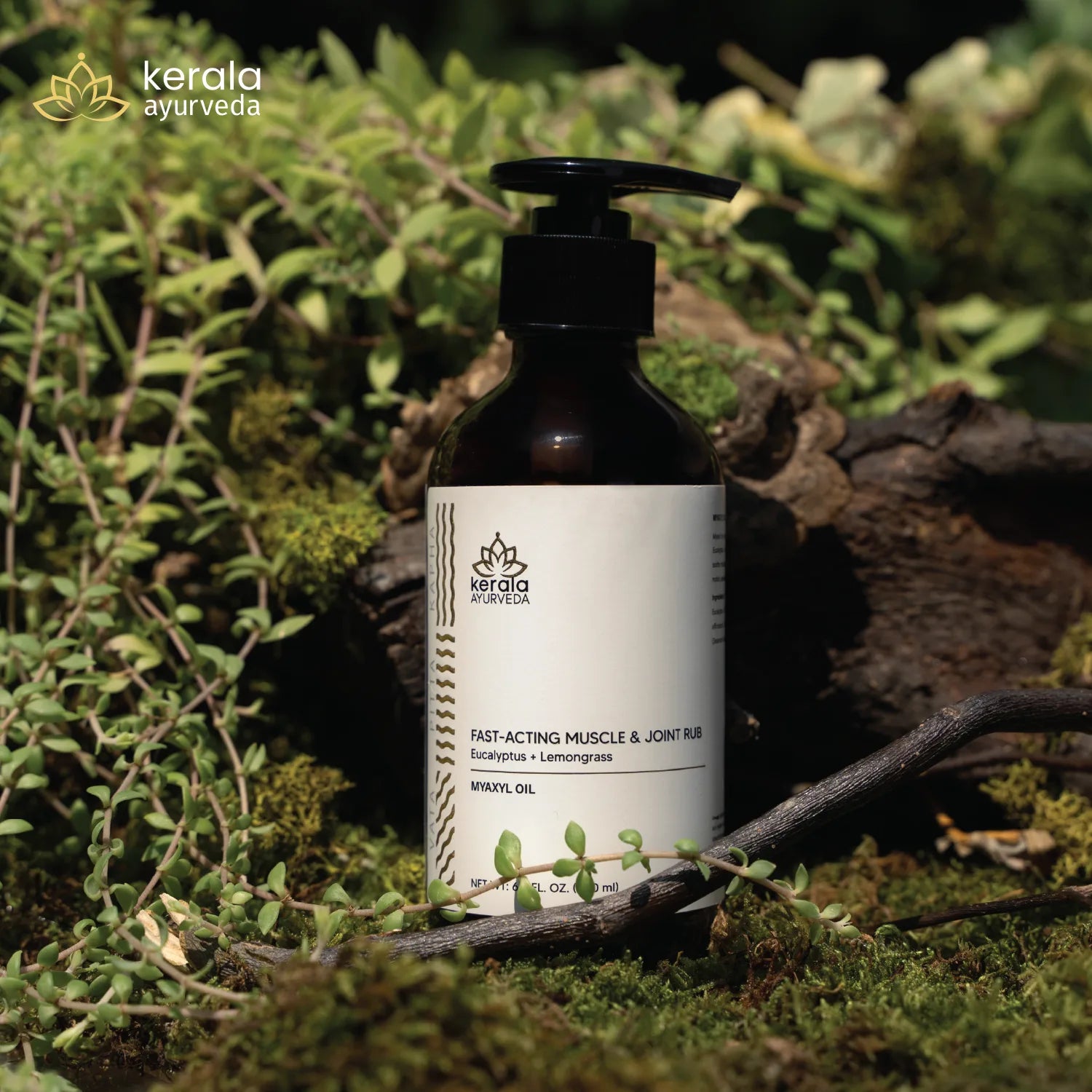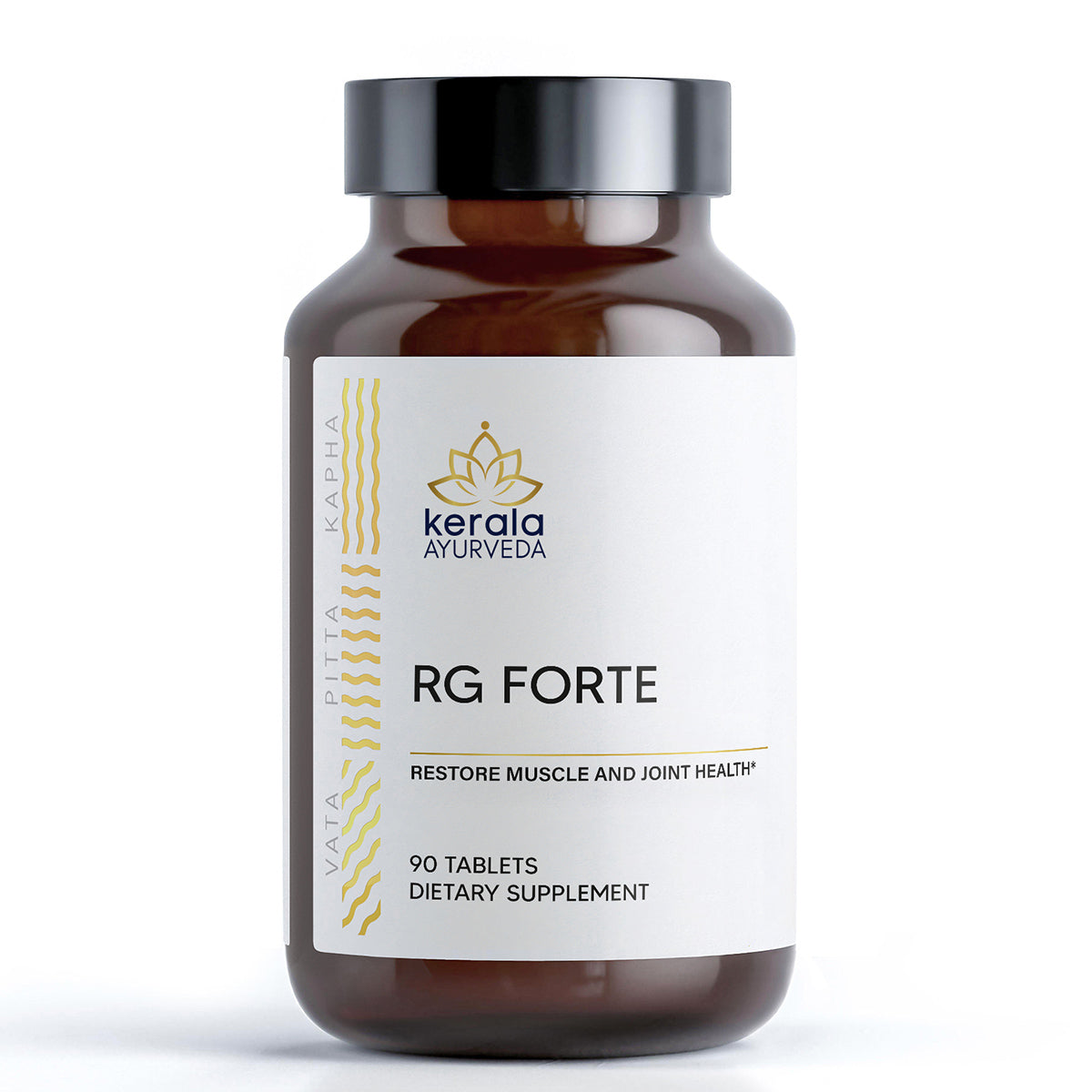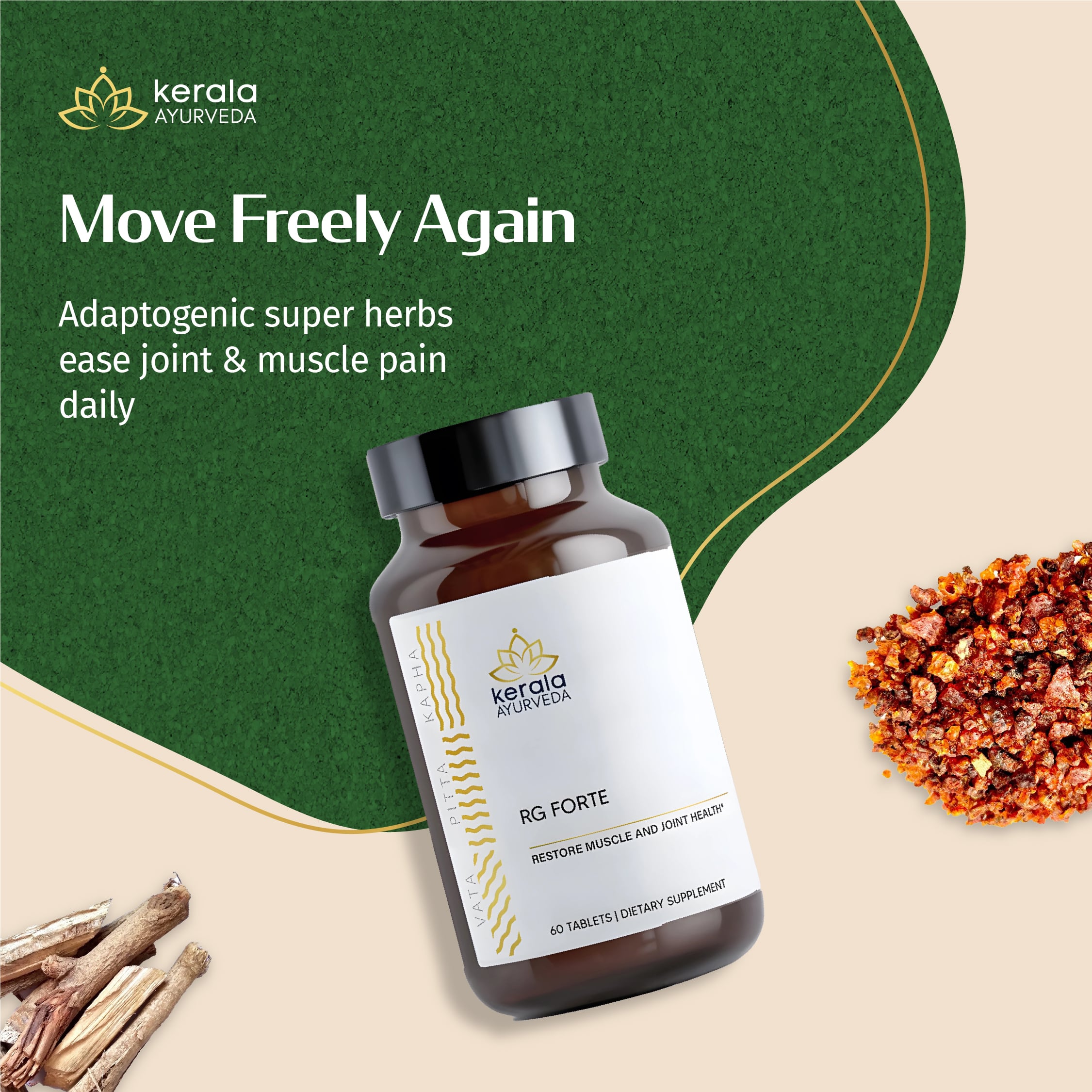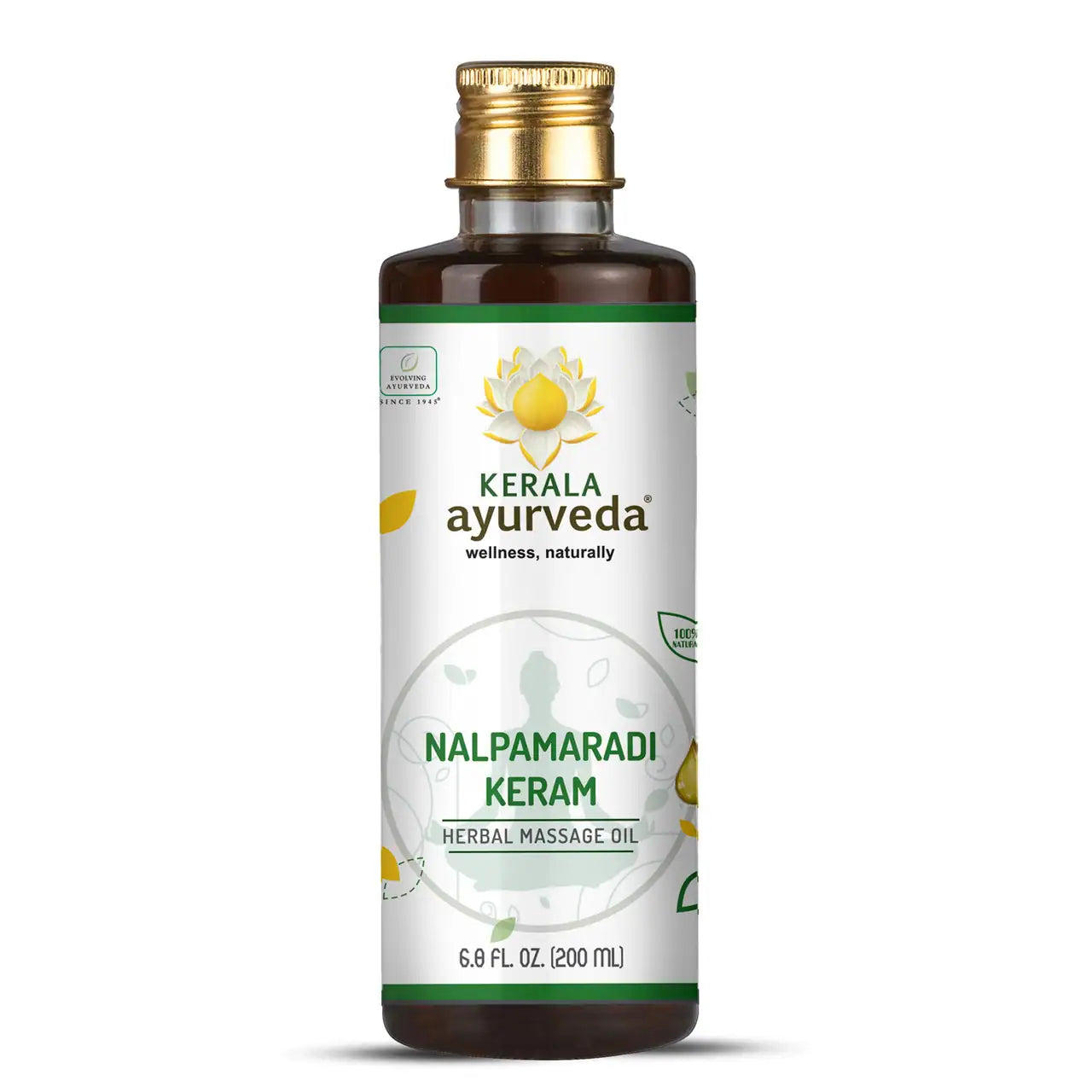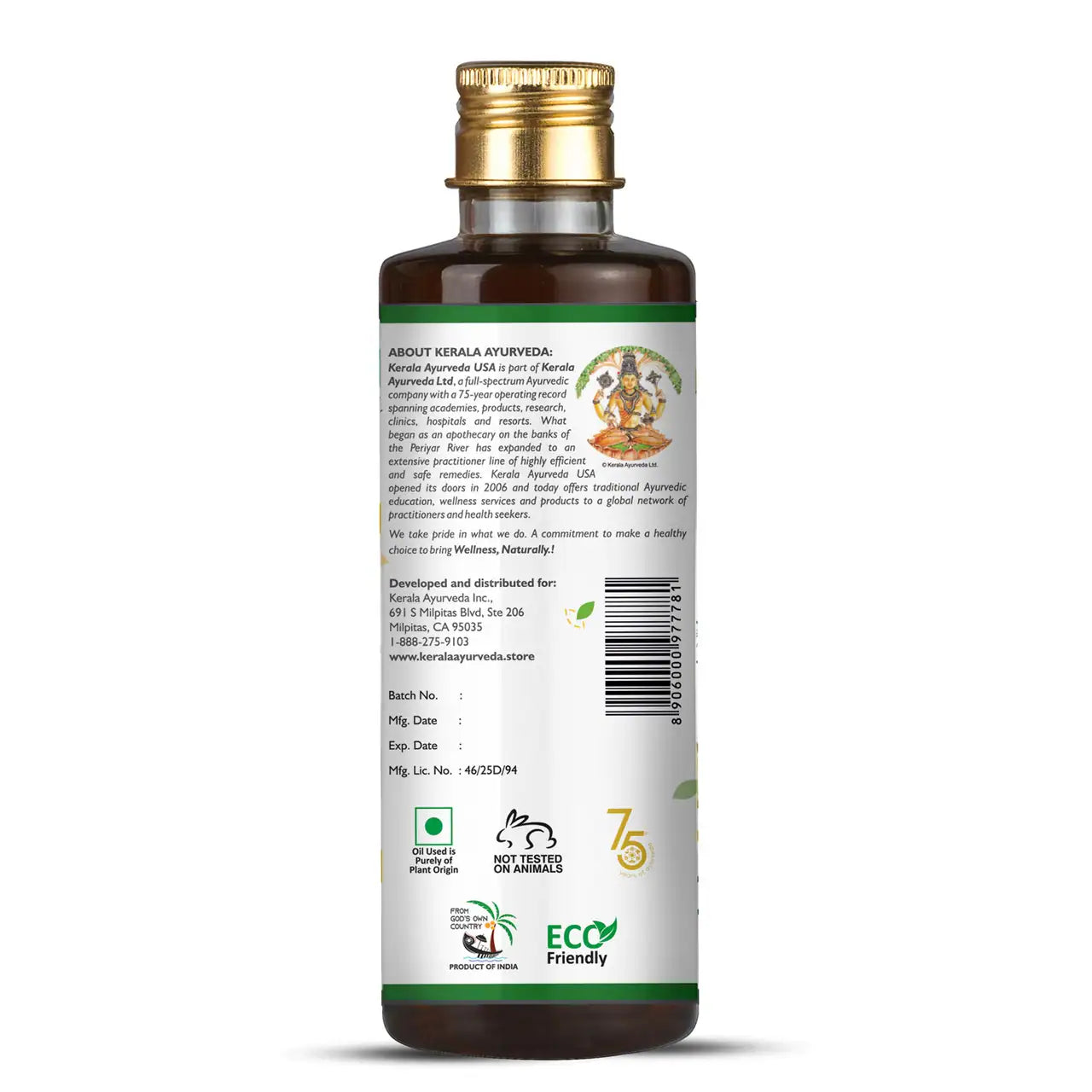Highlights
Healthy, radiant skin reflects the balance of your inner wellness. Ayurveda offers time tested wisdom for nurturing skin health from both the outside and the inside. Let us explore how you can support your skin naturally.
Understanding Skin Disorders in Ayurveda

In Ayurveda, the term Kushta (skin disorders) describes a wide range of skin conditions. These disorders develop when your body's energies become imbalanced and affect your skin tissues. Understanding what causes these imbalances helps you address them at the root.
The Three Body Energies That Affect Your Skin
Ayurveda teaches that three Doshas (Elemental energies) govern our bodily functions:
Vata (Air energy): Controls all bodily movement. When imbalanced, it causes dry, rough, flaky skin.
Pitta (Fire energy): Controls heat and metabolism. When imbalanced, it causes red, inflamed, burning skin.
Kapha (Water energy): Controls moisture and structure. When imbalanced, it causes oily, congested skin.
When the Doshas become disturbed, they affect your lymph, blood, and skin tissues, leading to various skin disorders.
What Causes Skin Imbalances: Diet and Lifestyle
Many skin disorders begin with what you eat and how you live. Here are the most common causes:
Dietary Causes That Can Affect Your Skin

Poor Food Combinations: Certain food combinations create toxins in your body. For example, eating milk with fish or milk with fruit confuses digestive enzymes and causes the food to be improperly digested. Over time it creates Ama (toxins) that eventually reach your skin and cause problems.
Too Much Liquid with Meals: Drinking excessive liquids during meals weakens digestion. Weak digestion also creates Ama (toxins) that circulate through your body and affect your skin.
Heavy, Fried, and Oily Foods: Eating too many fried or greasy foods disturbs and slows digestion from too much oiliness that can lead to skin congestion and breakouts.
Eating at the Wrong Times: Eating before your last meal has been digested, skipping meals, eating on the run, or eating late at night all weaken digestion and creates Ama (toxins) that show up in your skin.
Foods That Disturb Skin Balance: When eaten in excess or continuously, certain foods can aggravate skin: excessive sour foods, too much salt, fermented foods, fried items, and heavy to digest dairy products.
Lifestyle Habits That Can Affect Your Skin

Holding Back Natural Urges: Suppressing natural body urges like vomiting keeps Ama (toxins) inside that should be eliminated. These toxins then circulate and can manifest as skin disorders.
Exercising Right After Eating: Intense activity or heat exposure immediately after meals prevents proper digestion and creates Ama (toxins) that can manifest as skin disorders.
Sudden Temperature Changes: Taking a cold shower or drinking ice water immediately after being hot, exercising, or stressed shocks your system and affects skin health.
Too Much Daytime Sleep: Excessive sleeping during the day increases heaviness in your body, slows digestion, and can contribute to skin disorders.
How These Factors Create Skin Disorders
When these dietary and lifestyle patterns continue over time, they disturb the three Doshas, Vata, Pitta, and Kapha. When disturbed these energies then contaminate lymph, blood and skin tissues, resulting in various disorders. Every skin disorder involves all three doshas to some degree, though one usually dominates.
Dietary Guidelines for Healthy Skin

If you experience chronic skin issues, then changing your diet is essential for creating lasting skin health. Here are simple guidelines anyone can follow:
Wholefoods Support Healthy Skin
- Fresh vegetables, especially leafy bitter greens, squash and root vegetables
- Light legumes like lentils or mung beans
- Whole grains, particularly barley, oats, aged rice
- Cooking with small amounts of ghee (clarified butter)
- Fresh ginger, black pepper, and turmeric to boost digestion
- Sweet, fresh seasonal fruits including dates
- Plenty of pure water and herbal teas
Foods to Reduce or Avoid
- Very spicy, sour, or salty foods
- Fried and heavy foods
- Poor food combinations (fruit or fish with dairy)
- Freshly harvested grains aggravate Kapha
- Yogurt (sour), especially at night
- Excessive fermented foods
- Processed foods and artificial ingredients
- Too much caffeine and soda
Choose Foods Based on Your Skin Type
If You Have Red, Inflamed, Burning Skin (Pitta imbalance): Eat cooling foods like cucumber, coconut, leafy greens, sweet fruits, and whole grains. Avoid hot spices, tomatoes, and fermented foods.
If You Have Dry, Rough, Flaky Skin (Vata imbalance): Eat warm, moist foods like cooked vegetables, whole grains, ghee, and soups. Reduce raw, cold, and dry foods.
If You Have Oily, Congested Skin (Kapha imbalance): Eat light, warm foods with mild spices. Include plenty of vegetables and light grains. Reduce heavy, oily, sweet, and dairy foods.
Support Strong Digestion

Strong digestion is key to healthy skin. Your body transforms food into nourishment instead of toxins when digestion is strong. To support healthy digestion:
- Eat all meals at regular times each day
- Wait until your previous meal digests before eating again
- Make lunch your largest meal
- Use digestive spices like ginger, cumin, coriander, and fennel
- Avoid overeating and late night eating
- Drink warm water or herbal tea with meals instead of cold drinks
Herbal Support: Two Ayurvedic Skin Oils
Kerala Ayurveda offers two exceptional skin care oils prepared using traditional methods. Both oils work externally to support your skin while you address internal causes through diet and lifestyle.
Nalpamaradi Keram: For Brightening and Even Tone

This traditional oil brightens skin tone, fades marks, and enhances your natural radiance. It is prepared with coconut oil, making it ideal for skin.
What It Helps With
- Uneven skin tone and pigmentation
- Marks and scars from past skin issues
- Itching and scaling
- Red, inflamed patches
- Rough, irritated skin
- Sun damage and tanning
- Stretch marks (over time)
Key Ingredients
- Four Fig Tree Barks: Support skin healing and regeneration
- Triphala: The three fruits provide antioxidant support and balance your skin
- Sandalwood: Cools and soothes irritated skin
- Indian Madder: Supports healthy blood and reduces discoloration
- Turmeric: Purifies and creates even skin tone
Best For: Red, inflamed skin with uneven tone. Particularly good for Pitta (Fire energy) imbalances.
How to Use: Apply to affected areas or the whole body. Massage gently in circular motions. Leave for 30 to 60 minutes, then lightly wash with lukewarm cloth. Use once or twice daily.
Eladi Keram: For Complexion and Texture

This traditional oil enhances complexion, soothes irritation, and improves skin texture. Like Nalpamaradi, it uses coconut oil as the base.
What It Helps With
- Enhancing natural complexion and radiance
- Dry, itchy irritations
- Dry, flaking skin
- Rough, dry scaly patches
- Scalp dryness and flaking
- Overall skin texture improvement
Key Ingredients
- Cardamom: Aromatic herb with purifying properties
- Costus: Balances energy and supports skin renewal
- Spikenard: Enhances complexion and soothes irritation
- Agarwood: Supports skin health with calming properties
- Saffron: Brightens complexion and creates a healthy glow
- Guggulu: Removes toxins and addresses deep skin issues
Best For: Dry, rough skin with texture issues. Particularly good for Vata (Air energy) and Kapha (Water energy) imbalances.
How to Use: Apply a thin layer to the face and affected areas. Massage gently upward. Leave on 30 minutes minimum before lightly washing with lukewarm cloth. For scalp issues, apply and leave one hour before washing. Use once or twice daily.
Which Oil Should You Choose?
Product Comparison Guide
|
Feature |
Nalpamaradi Keram |
Eladi Keram |
|
Primary Benefit |
Brightening and even tone |
Complexion enhancement and texture |
|
Best For Skin Type |
Pitta (Fire energy) - Inflamed skin |
Vata (Air energy) and Kapha (Water energy) |
|
Skin Feel |
Cooling and soothing |
Nourishing and softening |
|
Primary Action |
Reduces redness, fades dark spots |
Smooths texture, enhances radiance |
|
Key Ingredients |
Turmeric, Sandalwood, Indian Madder, Four Fig Trees |
Saffron, Cardamom, Agarwood, Guggulu |
|
Choose This Oil If You Have: |
Uneven tone and dark spots, redness and inflammation, sun damage, Scars from past skin issues, overall brightening |
Dry, rough, flaking skin, uneven texture, deep complexion enhancement, scalp dryness or, need for moisture and smoothness |
Can You Use Both? Yes. You can alternate between the two oils or use one in the morning and one in the evening. Always test a small area first to check for sensitivity.
Herbal Support: Mahathikthakam Kwath (Tablets)

While herbal oils support your skin externally, lasting skin health requires internal purification. Mahathikthakam Kwath is a powerful herbal formula that addresses skin disorders from within by purifying the blood and balancing the doshas.
What It Is
This formula has 27 herbs that cleanse Ama (toxins) from the blood and tissues. The name means great bitter, referring to its bitter taste. Bitter taste is particularly effective for cooling and cleansing, especially for red, inflamed skin conditions.
What It Helps With
- Persistent skin disorders with redness and heat
- Burning sensations and itching
- Inflamed, red skin conditions
- Disorders that do not heal easily
- Chronic scaling and flaking
- Issues with oozing or discharge
- Uneven pigmentation
- Scalp flaking and irritation
Key Ingredients
- Neem: Powerful blood purifier that eliminates toxins
- Triphala: The three fruits offers gentle detoxification and balance
- Indian Sarsaparilla: Cools heat, purifies blood, enhances complexion
- Sandalwood: Cools and soothes from within
- Licorice: Supports stomach and balances heat
- Guduchi: Detoxifies and strengthens immunity
- Turmeric: Purifies, reduces inflammation, promotes healing
How to Use
Tablets: Take 1 - 2 tablets twice a day before food. Use under the guidance of an Ayurvedic practitioner, especially if you have other health issues.
How Long: Typically used for 4 to 6 weeks, then consult with your practitioner to assess progress.
Daily Ayurvedic Skin Care Routine

Combine external oils, internal purification, and dietary changes for best results. Here is a simple routine:
Morning Routine
- Drink a glass of warm water upon waking
- Apply Nalpamaradi or Eladi Keram to your face and affected areas
- If time permits, massage your whole body with the oil
- Leave oil on for 30 to 60 minutes
- Take Mahathikthakam Kwath before eating
- Wash off the oil with lukewarm water and cloth
- Eat a light, healthy breakfast
Evening Routine
- Take your second dose of Mahathikthakam Kwath before dinner, if using twice daily
- After dinner has digested, apply oil to your face and body
- Leave on 30 to 60 minutes and wash off the oil with lukewarm water and cloth
Your Path to Radiant Skin
Ayurveda offers a complete approach to skin health that addresses the root cause and symptoms based on each person’s imbalance. By combining mindful eating with herbal oils like Nalpamaradi Keram and Eladi Keram and internal purification through Mahathikthakam Kwath you will support your skin from every angle.
Remember that skin health reflects overall wellness. These practices support your entire system in finding balance. With patience and consistency, you can achieve healthy skin that reflects your inner vitality.
Start with small changes and gradually build a routine that feels natural. Your skin will respond to this gentle, nourishing approach, revealing its natural beauty over time.
However, for chronic or severe skin disorders, it is recommended to consult an Ayurvedic Practitioner for personalized guidance that will optimize your healing process.
Chronic or severe skin disorders are more than an inconvenience; it represents a significant imbalance affecting your overall vitality and wellbeing. While the guidance in this article provides a foundation for understanding and addressing skin health through Ayurveda, each person's journey to wellness is unique.
The path to relief involves understanding your unique constitution, identifying which energy is imbalanced, making thoughtful food choices, establishing supportive daily routines, managing stress, and selecting appropriate herbal support. This comprehensive approach addresses root causes rather than just symptoms, supporting your body's natural capacity for health and overall wellness.
Consulting with an Ayurvedic Practitioner

For those experiencing a chronic or severe skin disorder, consulting with an experienced Ayurvedic Practitioner can provide invaluable insight into your specific imbalance and create a personalized wellness plan tailored to your needs.
An Ayurvedic Consultation can:
- Conduct a thorough assessment of your birth constitution (Prakriti) and current imbalances (Vikriti)
- Identify the root causes of your skin disorder beyond surface symptoms
- Create a customized nourishment plan based on your unique needs
- Recommend specific herbal formulations and dosages appropriate for you
- Guide you in establishing daily routines that support your natural rhythms
- Suggest therapeutic practices such as Panchakarma when appropriate
- Monitor your progress and adjust recommendations as you heal
- Address any underlying health concerns contributing to your skin disorder
The Kerala Ayurveda Wellness Center offers authentic Ayurvedic consultations both in person and online with experienced Practitioners who can guide you on your path to health and wellness.
Timeless Ayurvedic Beauty Program
Looking for hands-on training in Ayurvedic skincare? Kerala Ayurveda Academy offers this sought-after weekend workshop: Timeless Ayurvedic Beauty. This immersive 2-day experience teaches you to create personalized beauty products for skin, hair, and body while understanding how your skin reflects your internal health. You'll learn hands-on techniques, discover your unique constitution, and master proven remedies for common concerns like acne, aging, and pigmentation.

Ayurvedic References
Traditional Texts:
- Ashtanga Hridayam, Kushta Chikitsa (skin disorders chapter)
- Charaka Samhita, Kushta Nidana (causes of skin disorders)
- Charaka Samhita, Kushta Chikitsa (management of skin disorders)
- Sahasra Yoga, Tailayoga Prakarana (oil formulations)
- Ayurvedic Formulary of India, Volume 1




